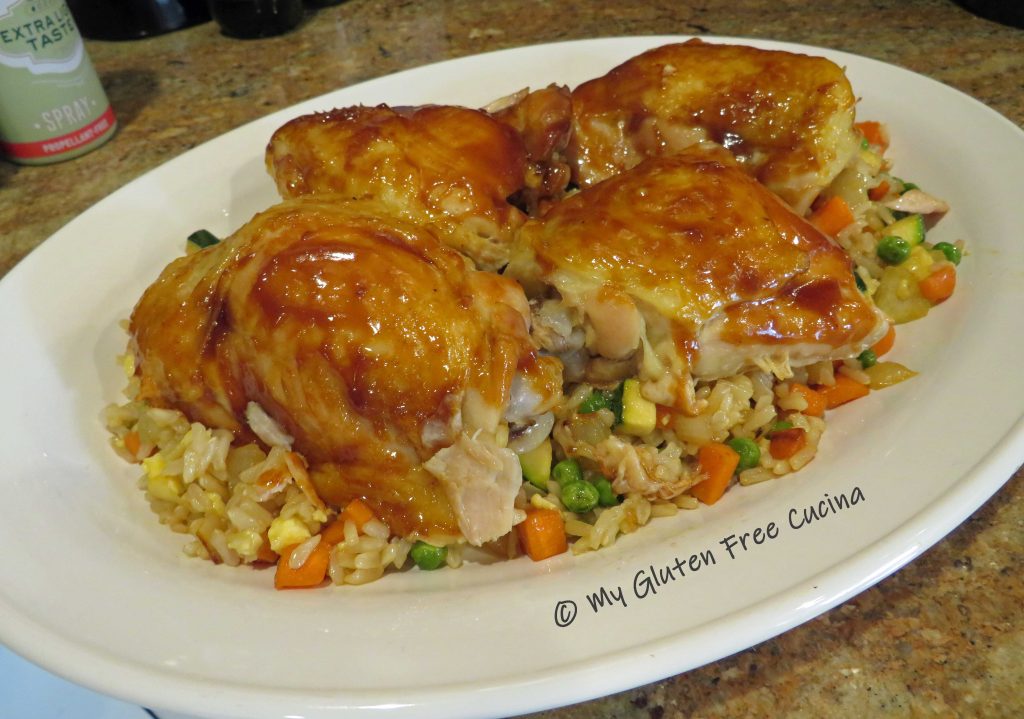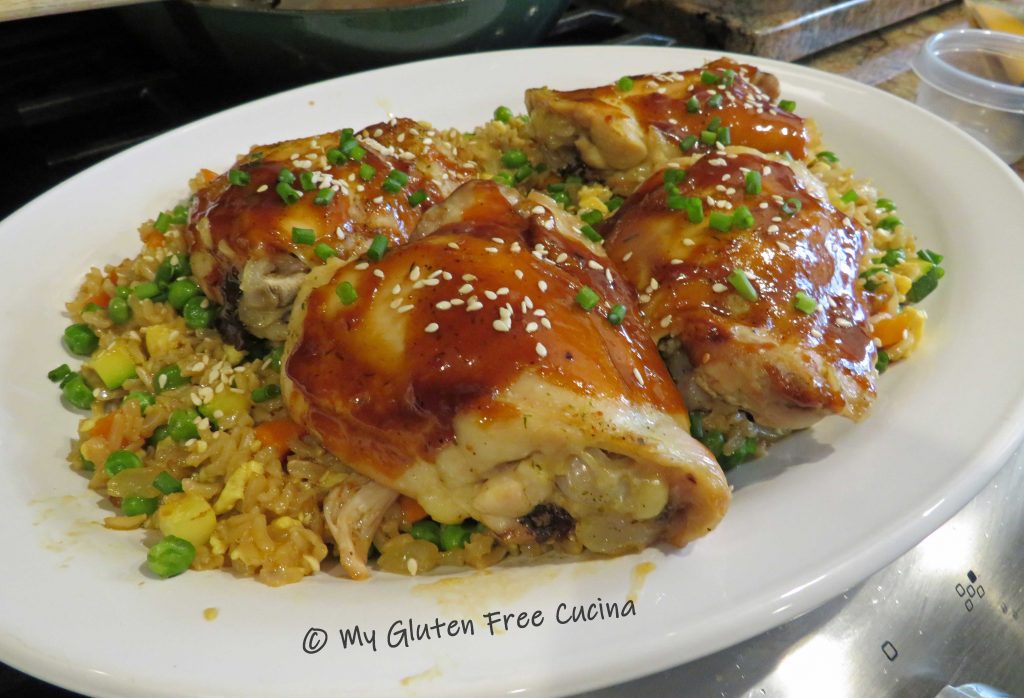Gluten Free Moo Shu Pork
Moo Shu Pork! Today was my first time making this popular Chinese-American dish, and it’s a keeper! The flavor and texture of the marinated pork and crisp veggies was just incredible. And how about those little Mandarin pancakes?
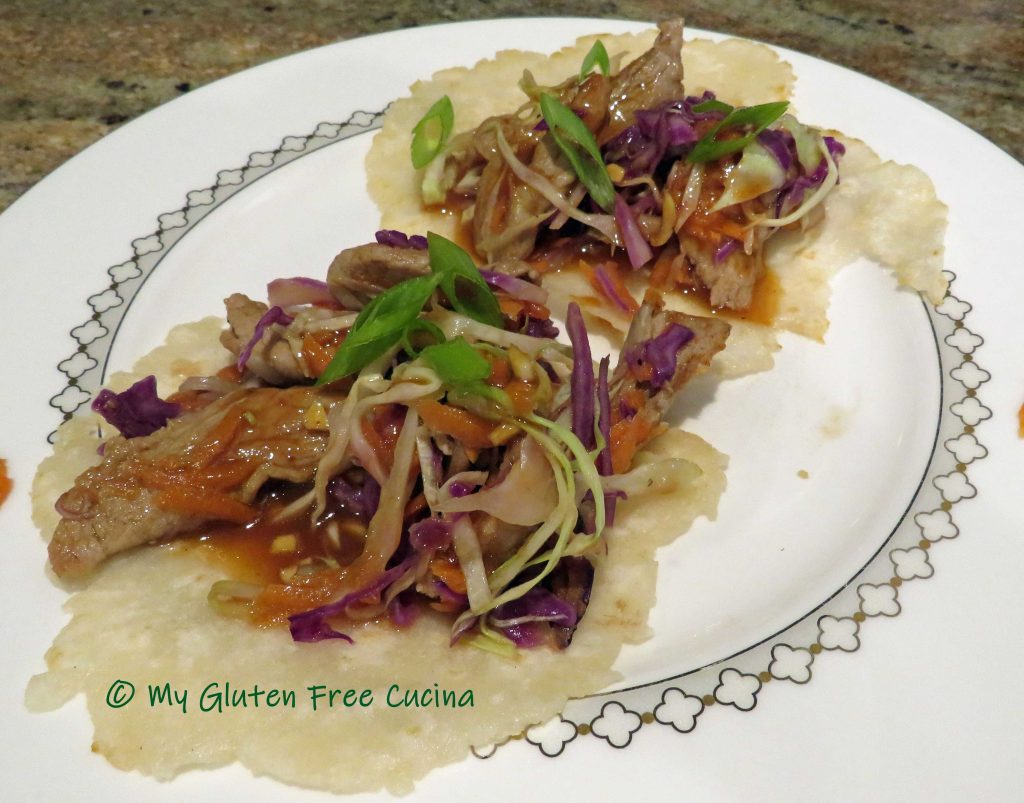
What makes this dish gluten free?
There are a few ingredients you will need to be cautious about in this dish. While the pork and veggies are naturally gluten free, you need to read the labels on those Asian condiments! Hoisin Sauce, Plum Sauce, Soy Sauce, Oyster Sauce all may contain wheat. You can find gluten free condiments, just read the labels carefully!
I thought I would be getting out of my comfort zone with the Mandarin pancakes, but they were really easy to make! Surprisingly, they have just 3 ingredients and require no special equipment! That’s right, no stand mixer, no food processor, just a rolling pin!

Mise en Place
As with all stir-fry recipes, you need to have your ingredients prepped and organized before you begin the cooking. I was well into the process when I realized I did not have enough Hoisin sauce for the recipe. Don’t be like me (spoiler alert, I was able to improvise, and it came out great)!!!
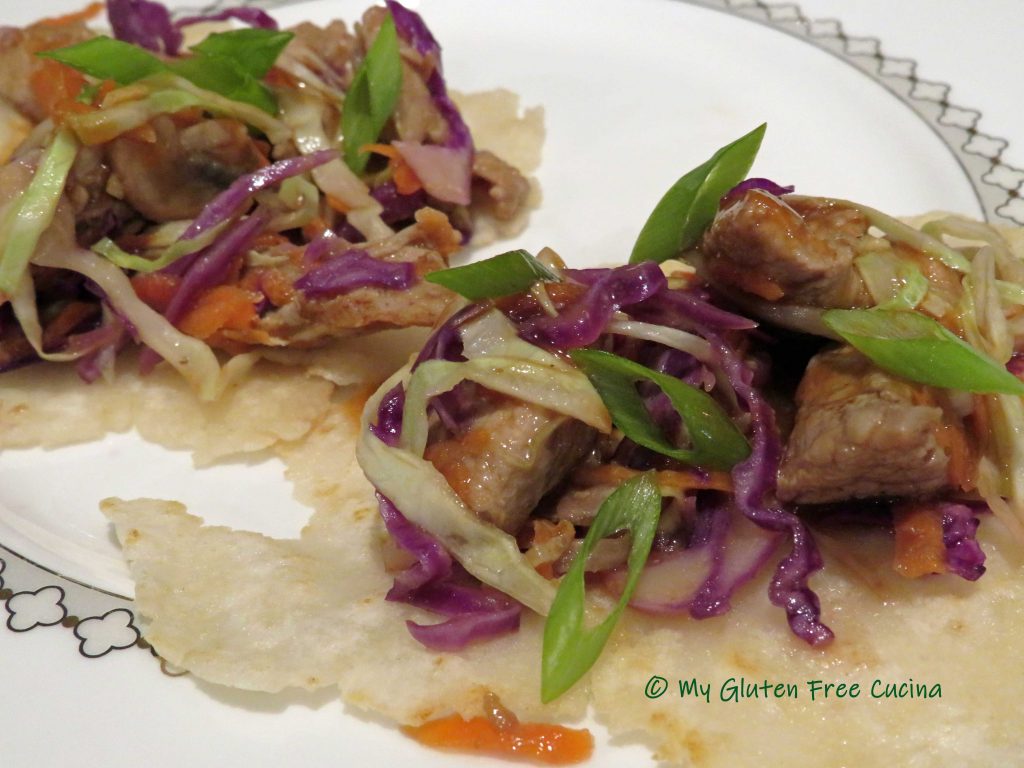
4 Servings
This post contains affiliate links.
Ingredients:
Marinade Ingredients:
Stir-Fry Ingredients:
- 12 oz. pork tenderloin, cut into thin strips
- 1 cup grated carrot (about 1 medium)
- 1-1/2 cups sliced mushrooms
- 2 cups red cabbage, shredded
- 2 cups green cabbage, shredded
- 2 scallions, bottoms and reserve greens sliced on diagonal for garnish
- toasted sesame oil
Mandarin Pancake Ingredients:
- 125 g. (about 3/4 cup) gluten free all-purpose flour (I used and recommend Better Batter Original Blend)
- 1/4 tsp. salt
- 1/2 cup boiling water
- toasted sesame oil
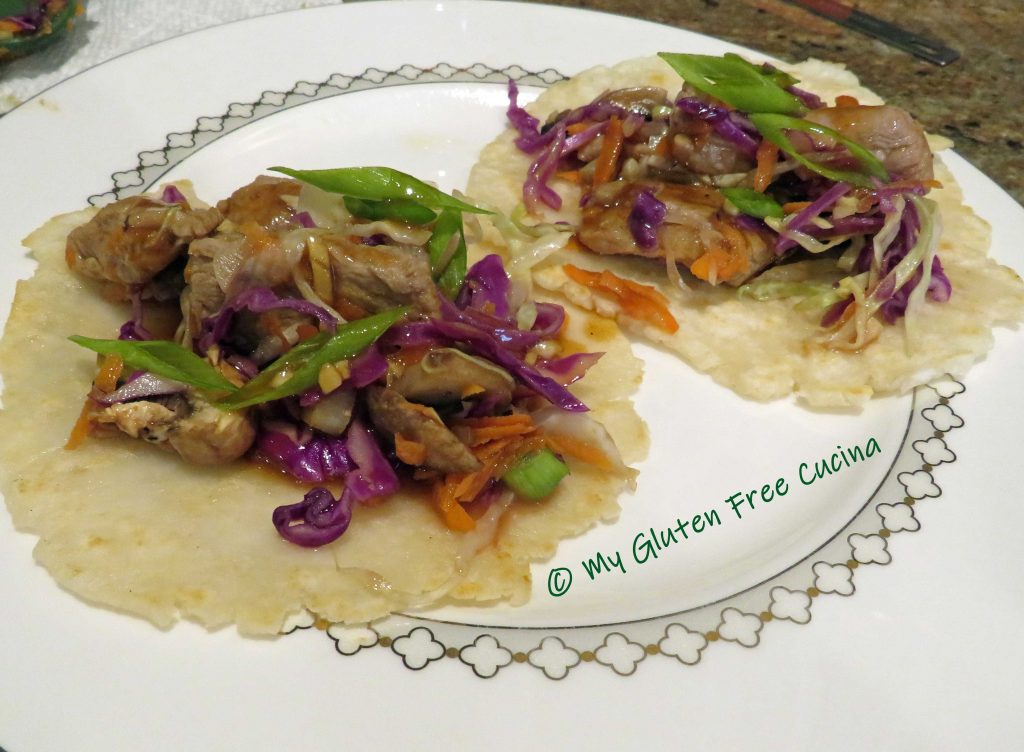
Preparation:
The first thing I did was whisk together the marinade ingredients. This allows the flavors to meld a bit before you begin cooking. Divide the marinade into 2 portions, use one for the meat and reserve one to drizzle on the finished dish. Remember I said that I didn’t have enough Hoisin sauce for this recipe? Well, I used what I had and topped it off with a little Plum sauce, so delicious!
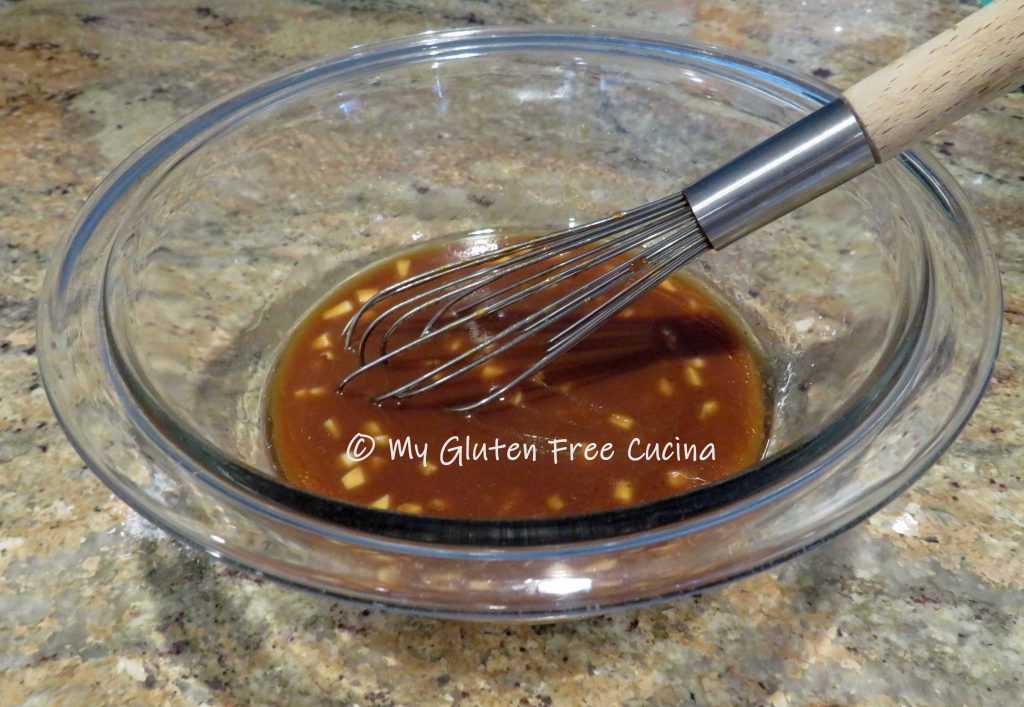
Next, I prepped the veggies. I used a coarse grater for the carrots and a mandoline to shred the cabbage.
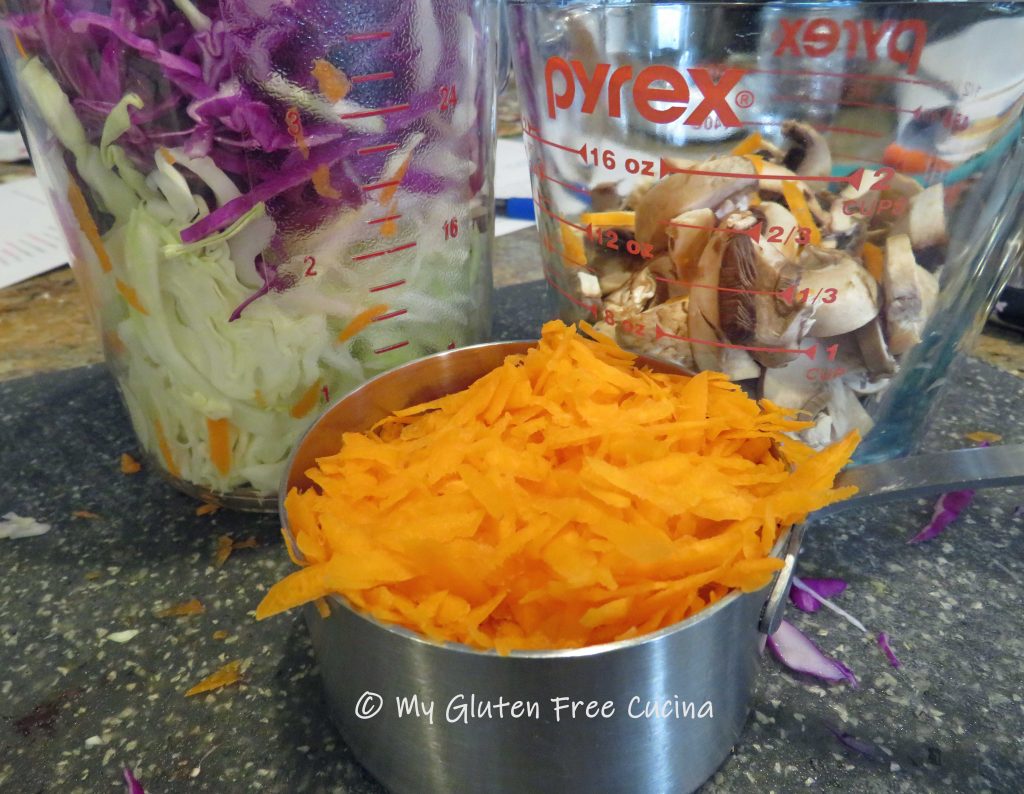
Now for the pancakes! You are going to be surprised at how easy they come together. First whisk together the flour and salt.
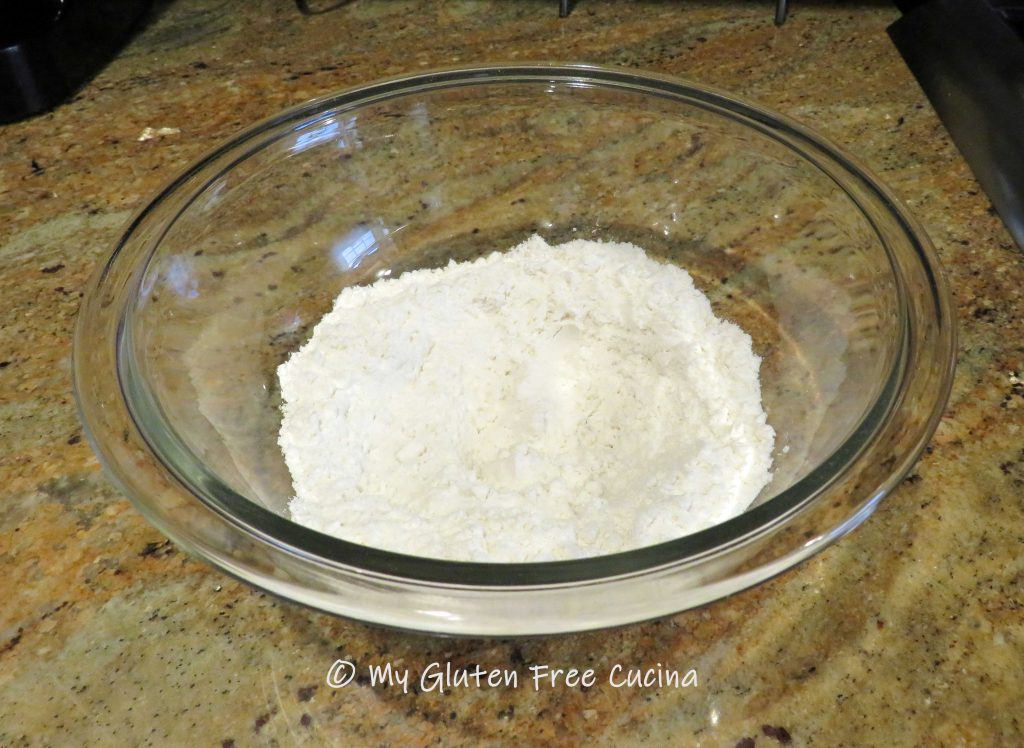
Add the water, stirring in a little at a time to form a dry, shaggy dough. The dough should hold together when you give it a squeeze. Shape the dough into a log.
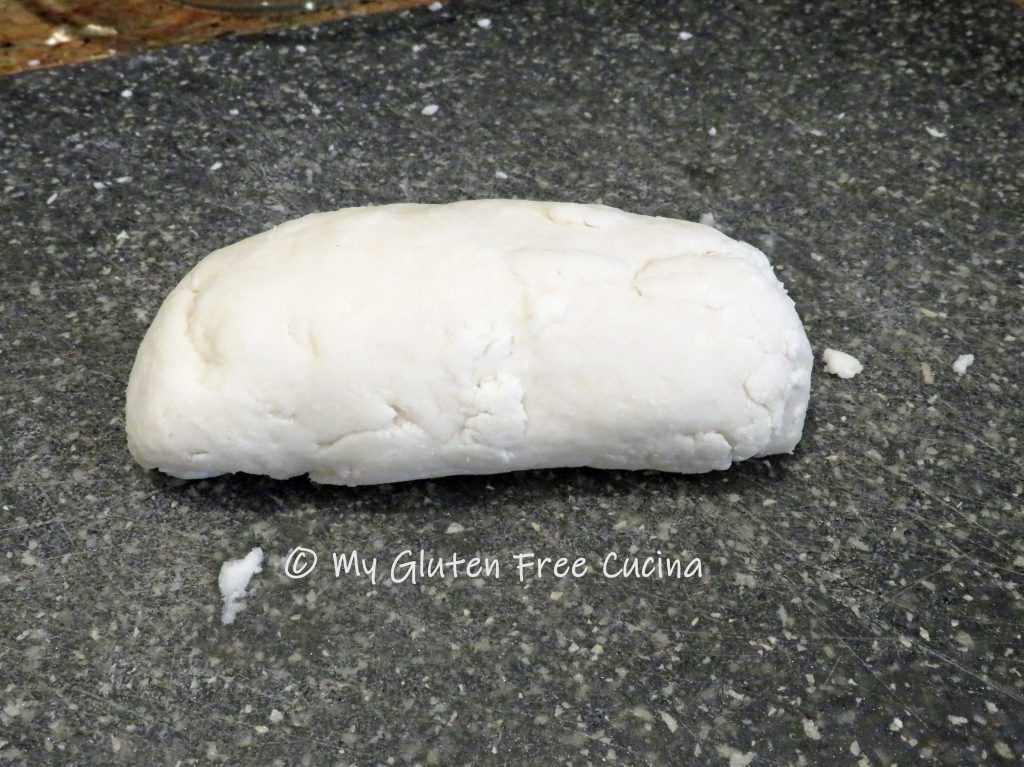
Cover with plastic wrap or a damp towel, and let it rest for 10 minutes to hydrate. While the dough is resting, cut the pork tenderloin into thin strips (I used kitchen shears). Place the strips into a bowl with half of the marinade and stir to coat.
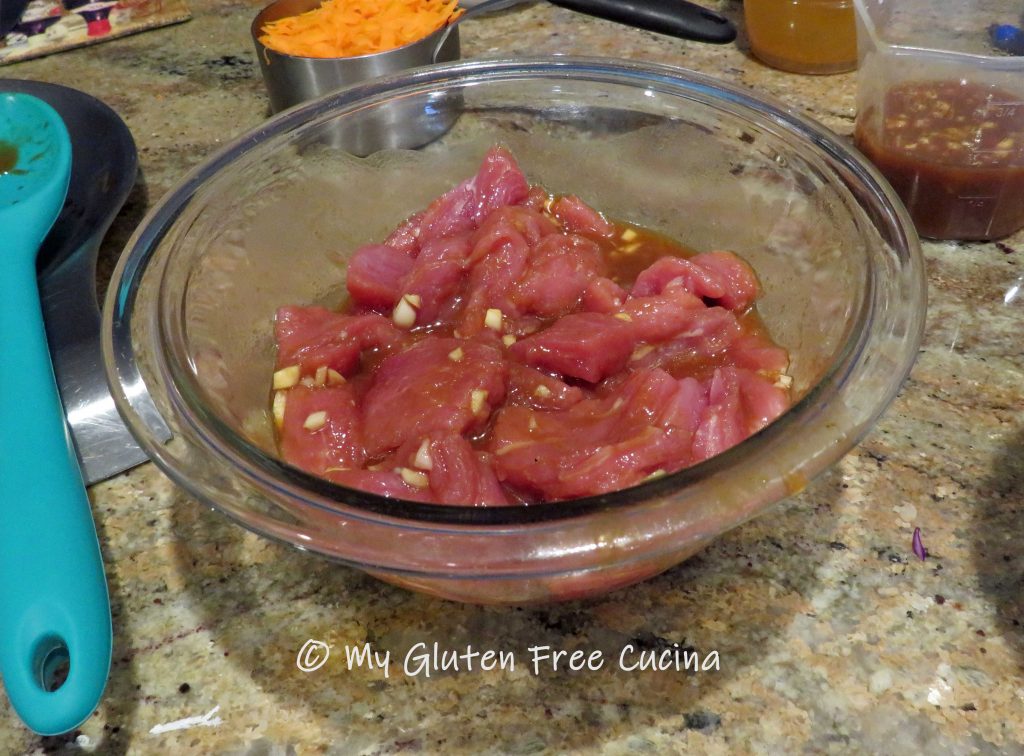
Use a bench knife to divide the dough log into 8 equal pieces.
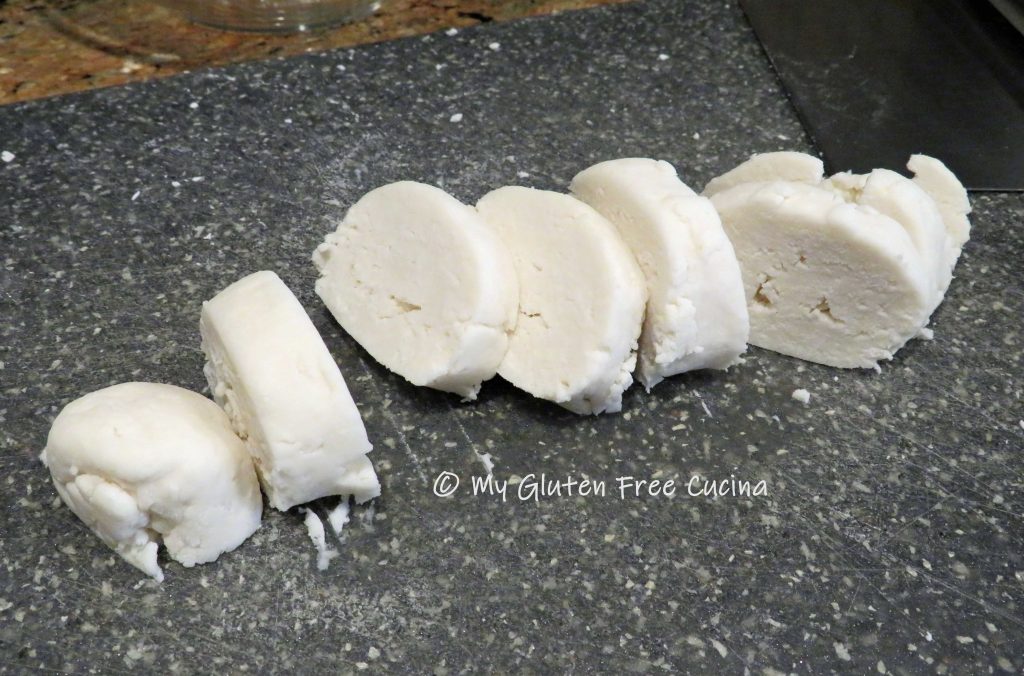
I used 6″ wax paper squares to help roll out the dough. Brush the paper with toasted sesame oil (so it doesn’t stick), place one section of dough between two sheets and roll it out to about 5″ diameter and 1/8″ thickness.
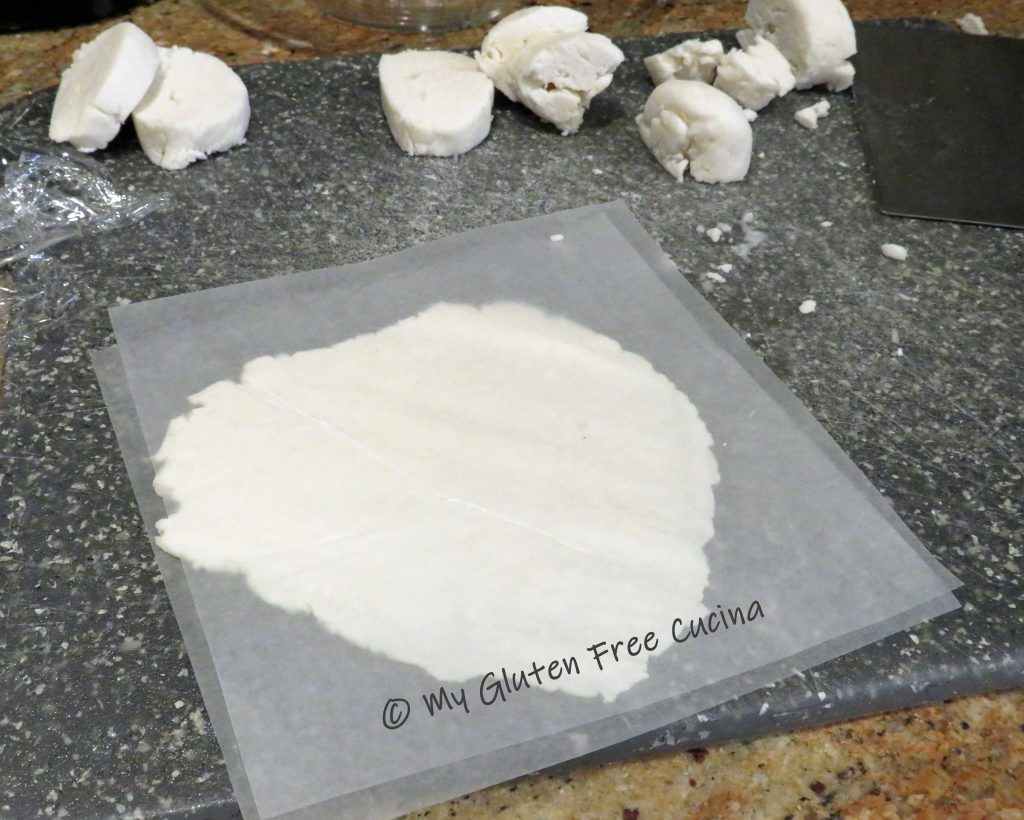
Continue with the remaining sections of dough and stack them between sheets of oiled wax paper.
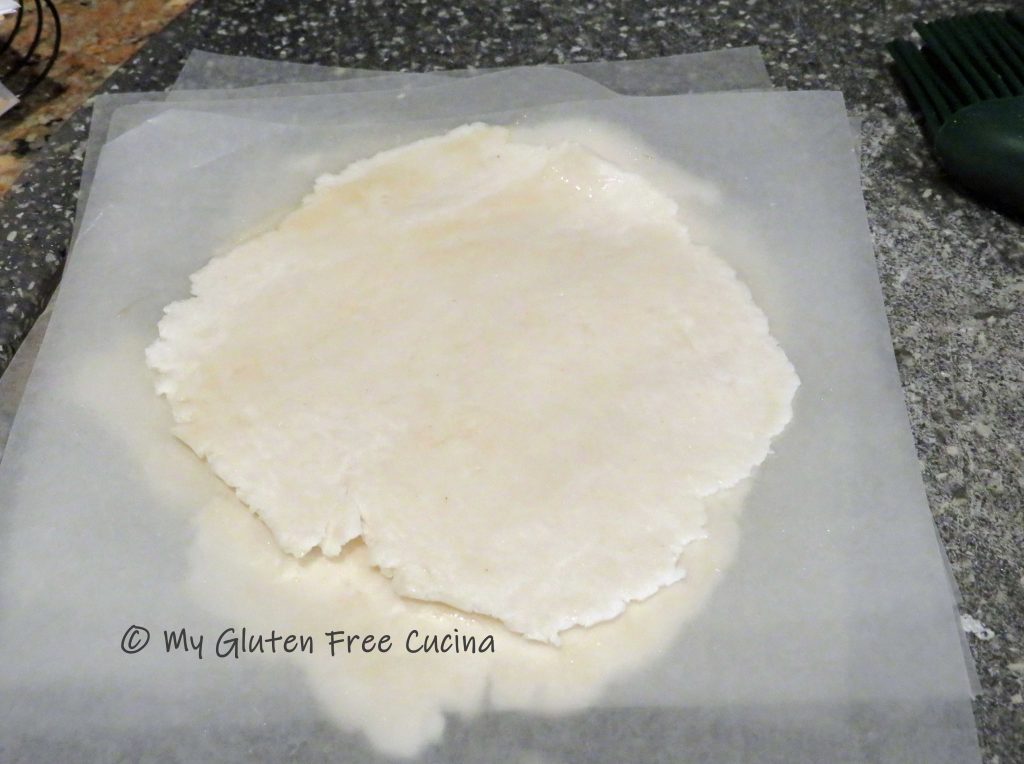
Now we are ready to finish the dish. Heat 2 nonstick skillets, a larger one for the stir fry and a smaller one for the pancakes. In the large skillet, begin cooking the pork. Discard any marinade remaining in the bowl.
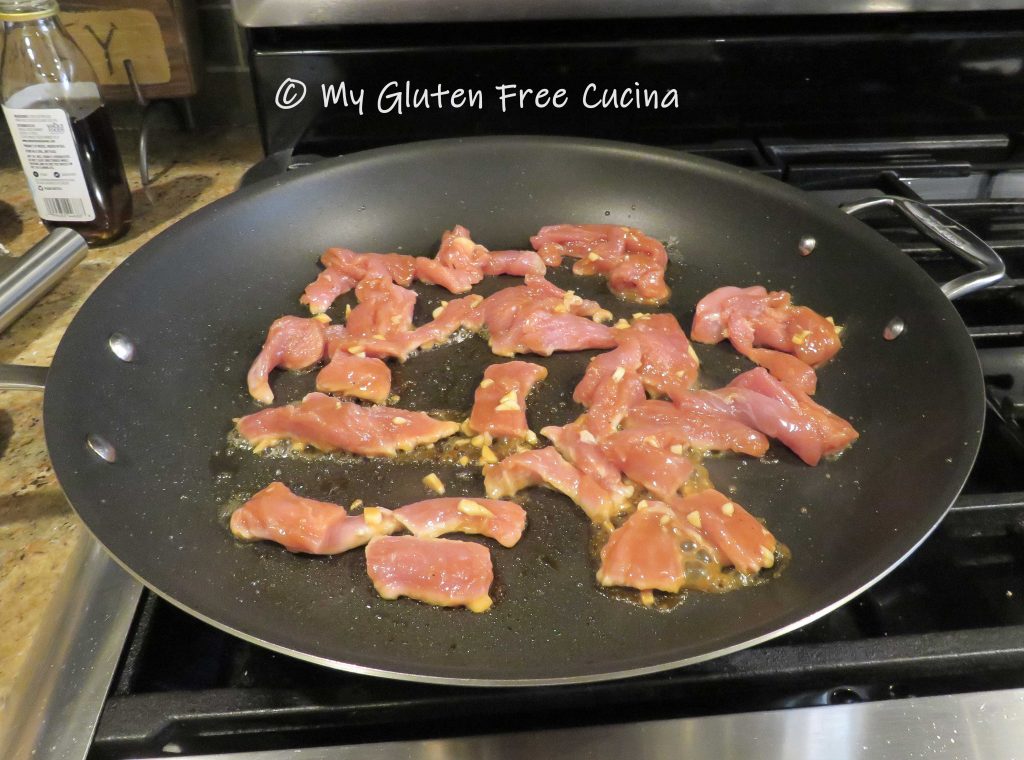 Use tongs to turn each piece to quickly brown both sides. The pork does not have to be cooked through at this point; it will finish cooking with the veggies.
Use tongs to turn each piece to quickly brown both sides. The pork does not have to be cooked through at this point; it will finish cooking with the veggies.
 Add all of the vegetables to the skillet.
Add all of the vegetables to the skillet.
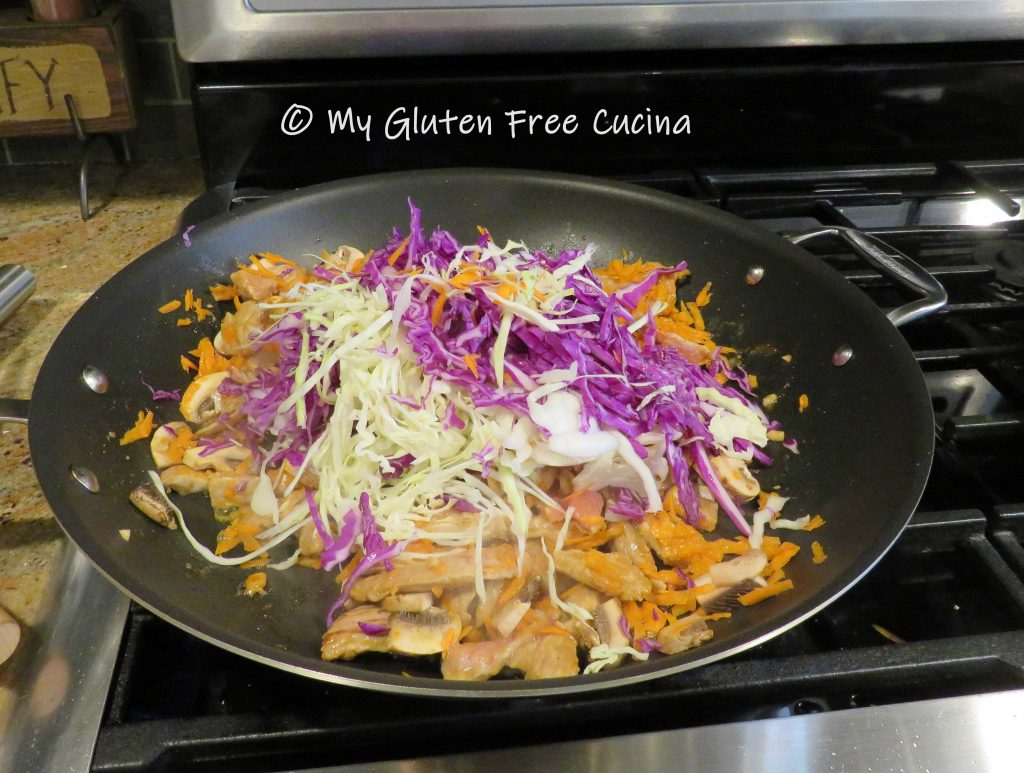
Stir fry the veggies for several minutes, turning frequently to wilt the cabbage.

When the veggies are crisp tender, turn down the heat. Brush the smaller skillet with sesame oil. Remove 2 of the Mandarin pancakes from the wax paper, stack one over the other and place in the skillet. Cook for 30 seconds, flip and cook another 30 seconds. Then, carefully separate the 2 layers and transfer to a plate.
Note ♪ Cooking the pancakes two at a time allows them to heat through on the outside and steam in the middle. As long as they are well oiled, you should have no problem peeling the layers apart.

Continue with the remaining pancakes and arrange on a serving platter or individual plates. Spoon the Moo Shu Pork onto each pancake. Drizzle the reserved marinade over each and garnish with scallion greens.

If you have leftovers, they will keep well for a few days in the fridge. I stored the Mandarin pancakes in a zip lock bag, with a sheet of wax paper between each and they remained soft and pliable. Reheat the Moo Shu Pork in the microwave and spoon over a pancake, no need to heat the pancakes as they will warm through from the heat of the pork.
Notes ♪♫ Mandarin pancakes are a thin, unleavened flatbread, similar to a tortilla. They came out great and reminded me of the wheat wraps I used to buy. I used (and recommend) Better Batter Original gluten free flour for this recipe. Even my gluten eating husband thought the Mandarin pancakes were delicious! I have not tested the recipe with other flour blends, so be aware that if you decide to use a different brand your results may vary. In general, I find that Better Batter is superior to other gluten free flours for recipes that require rolling and shaping of dough. CLICK HERE for 30% off any non-sale item.

 Print This Post
Print This Post

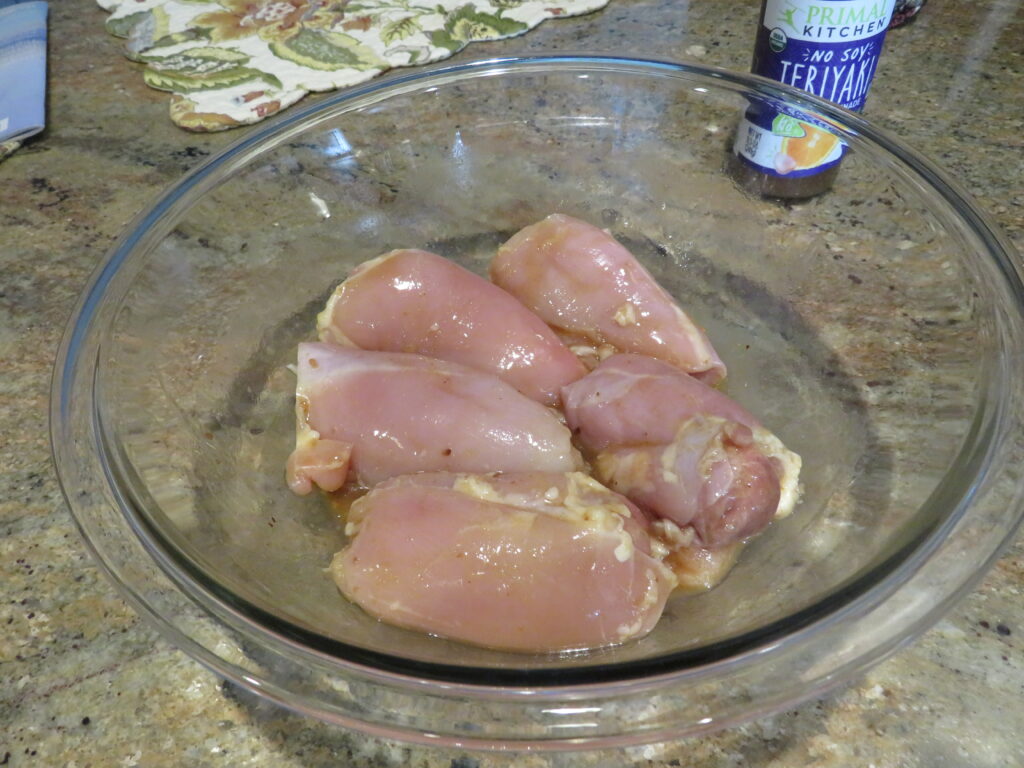
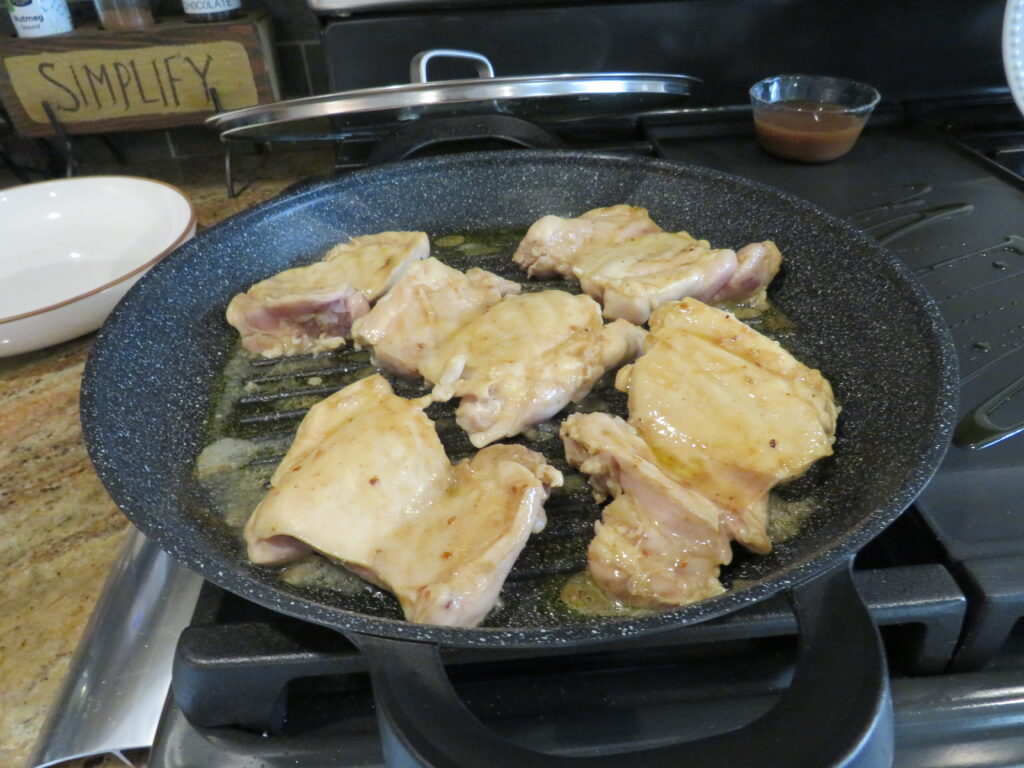
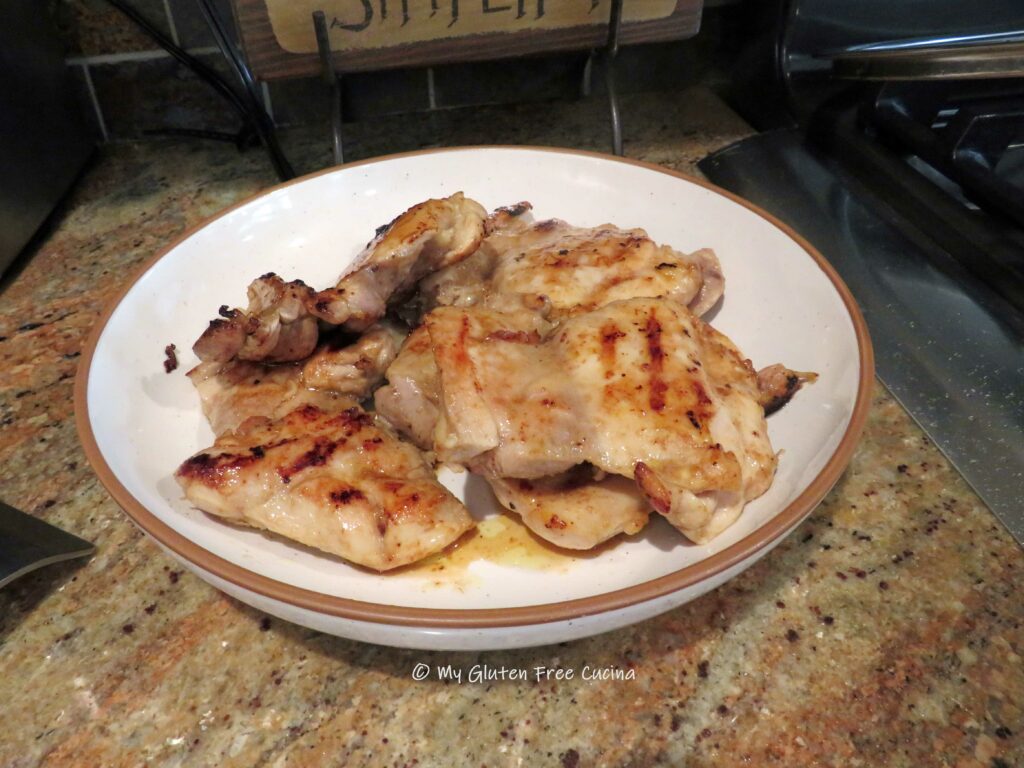

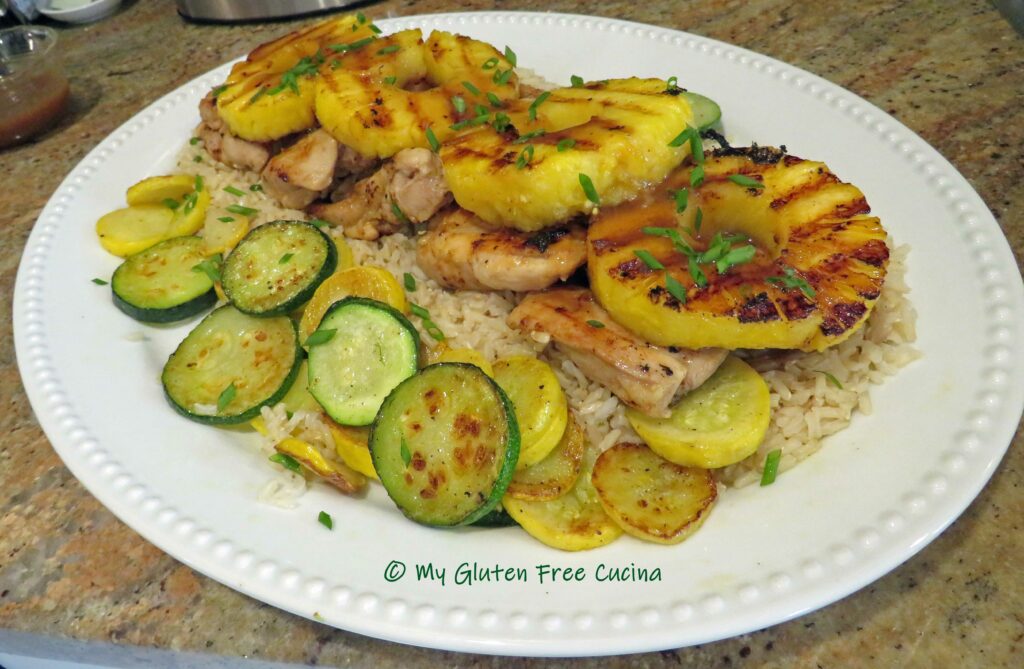
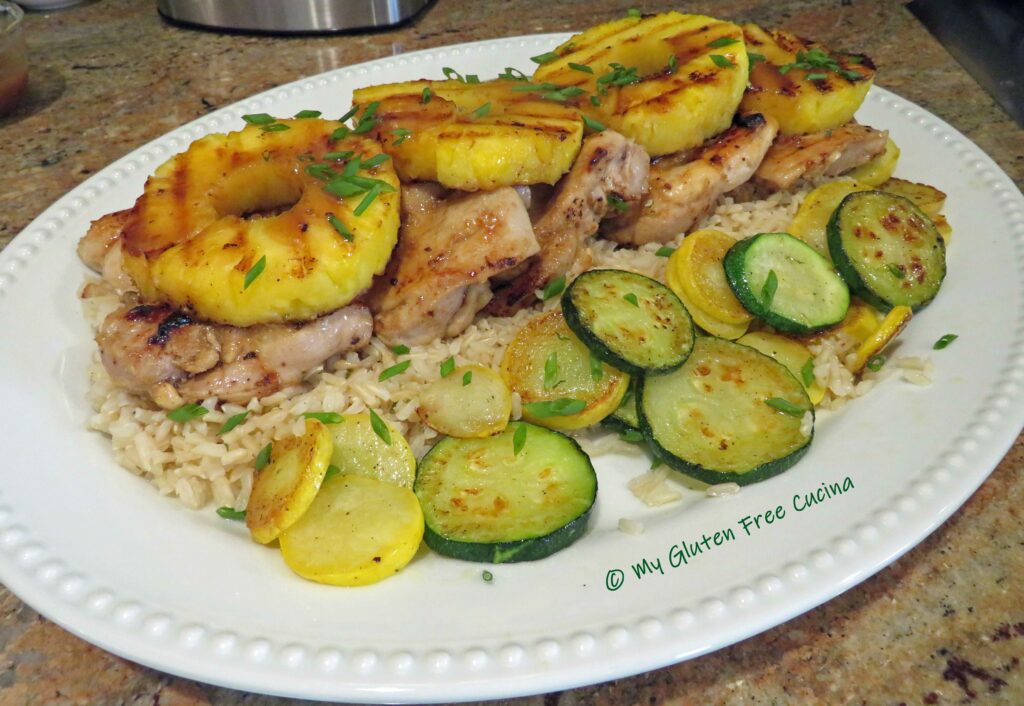




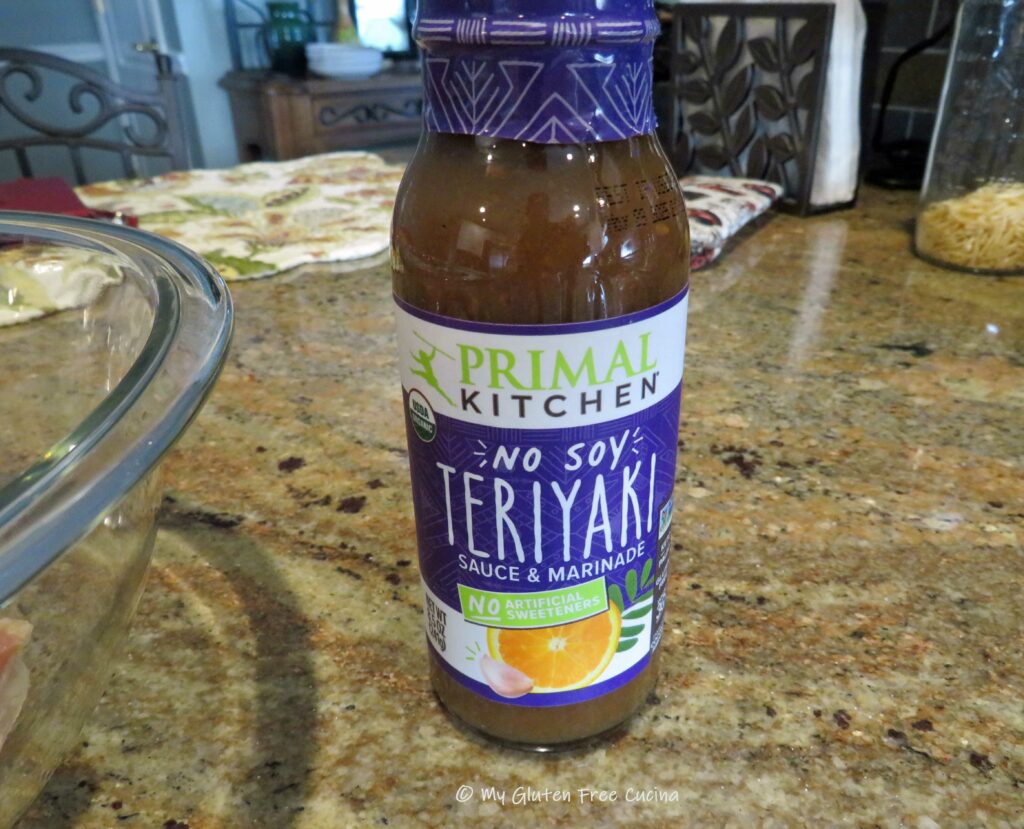

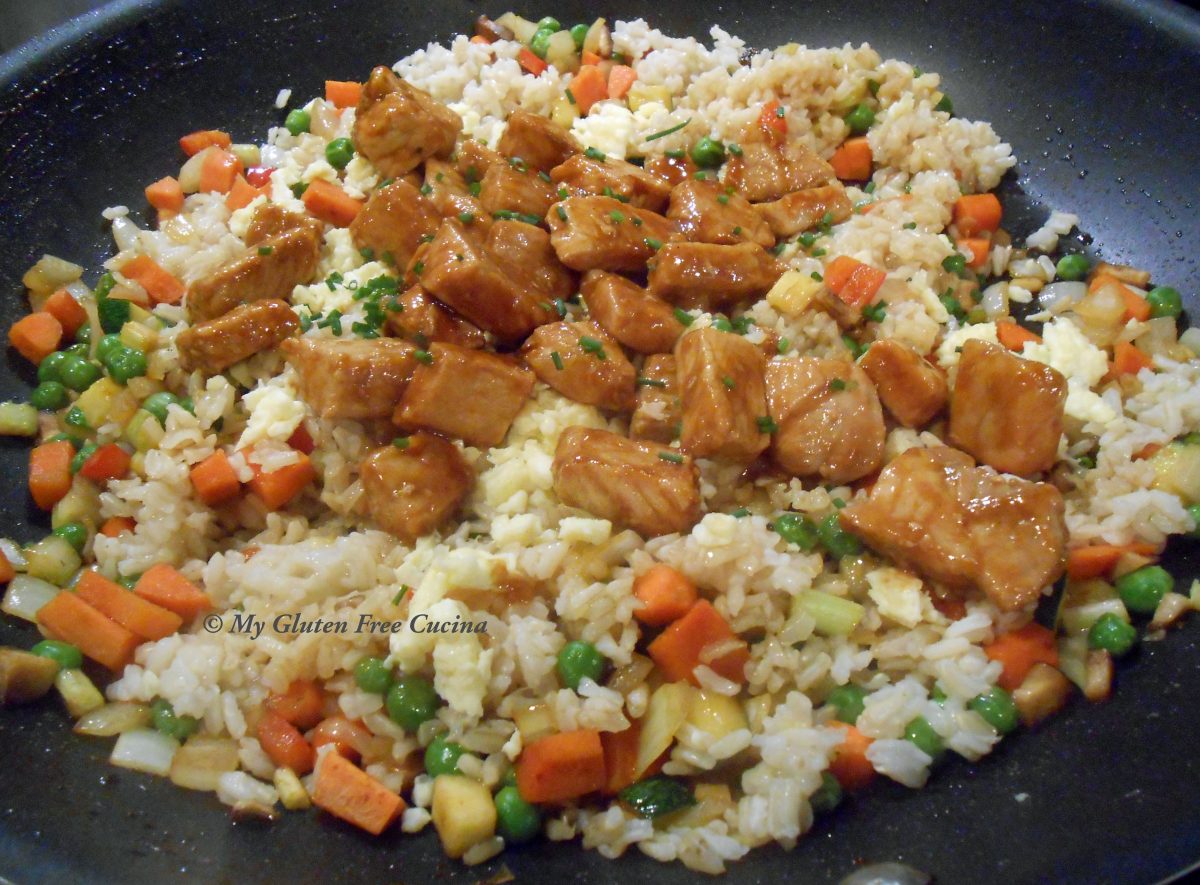







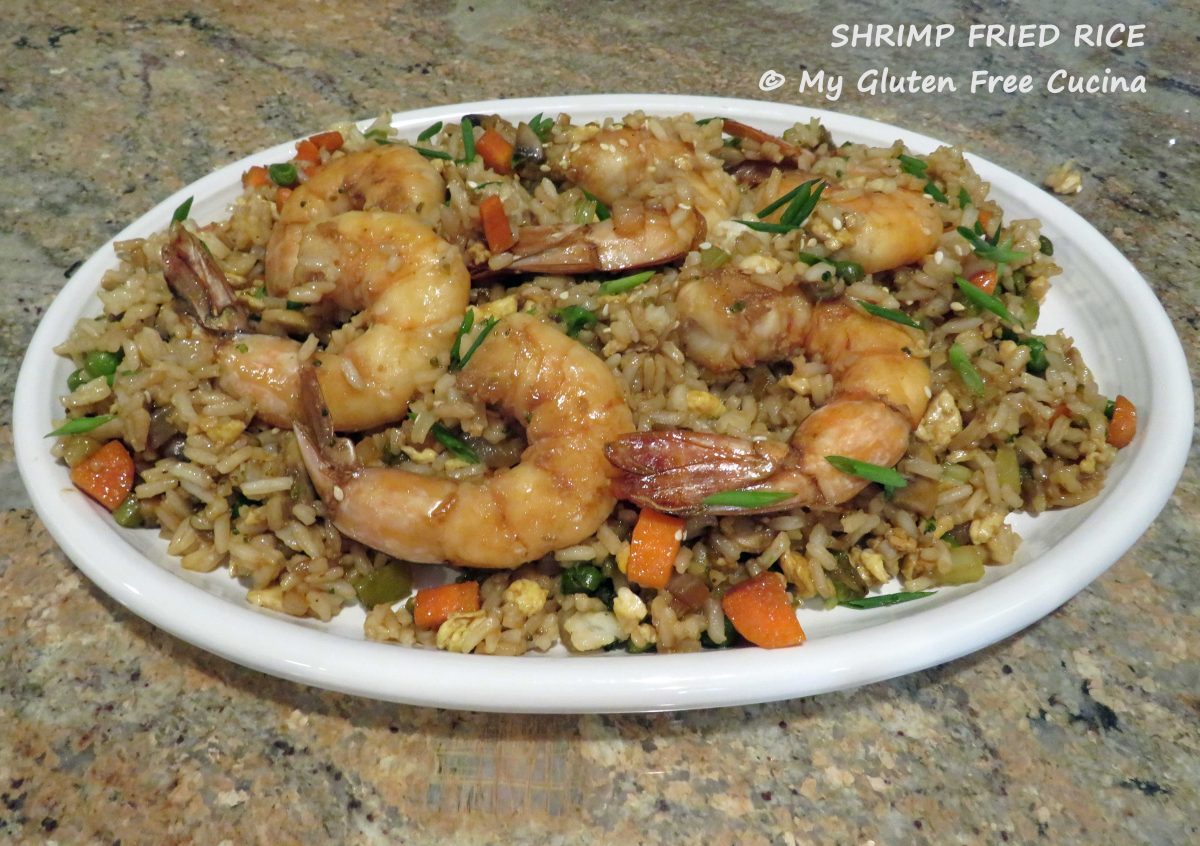
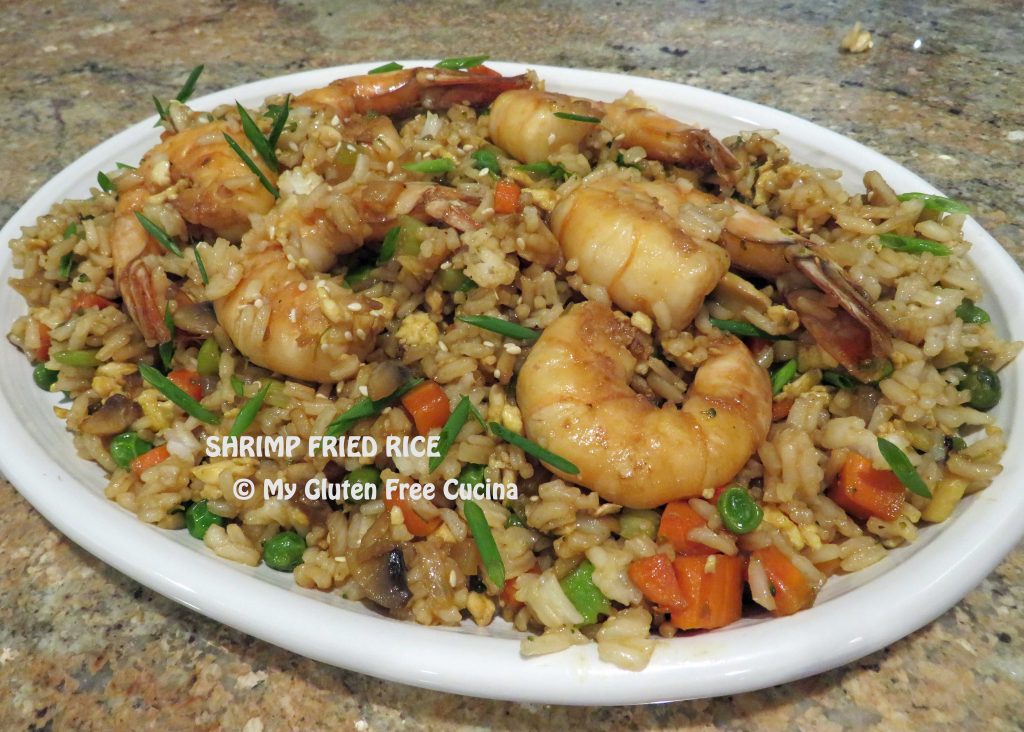
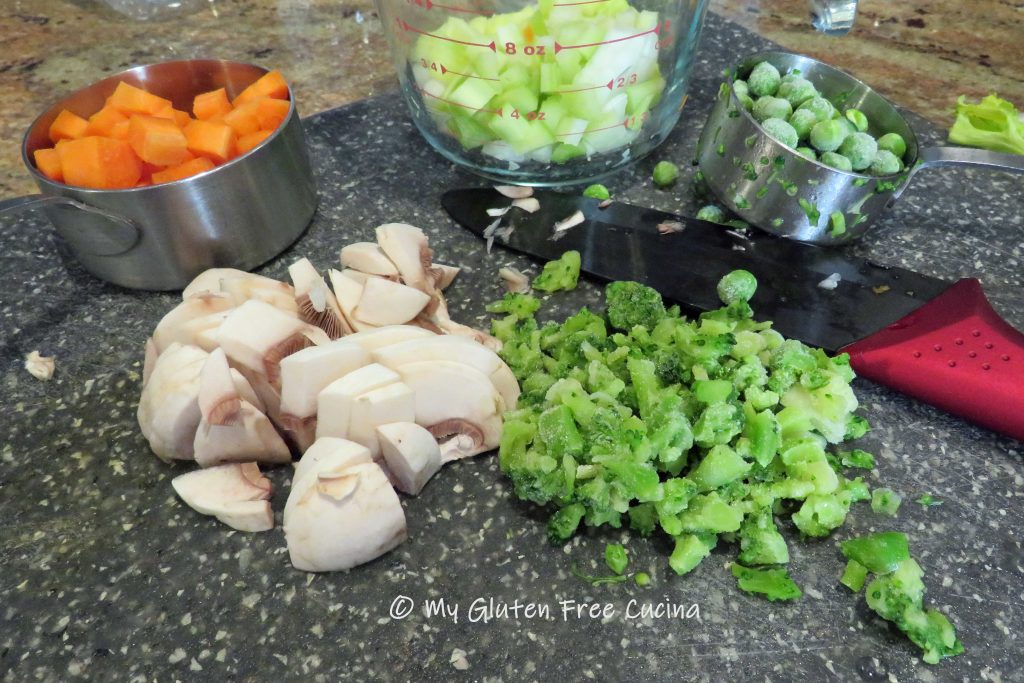
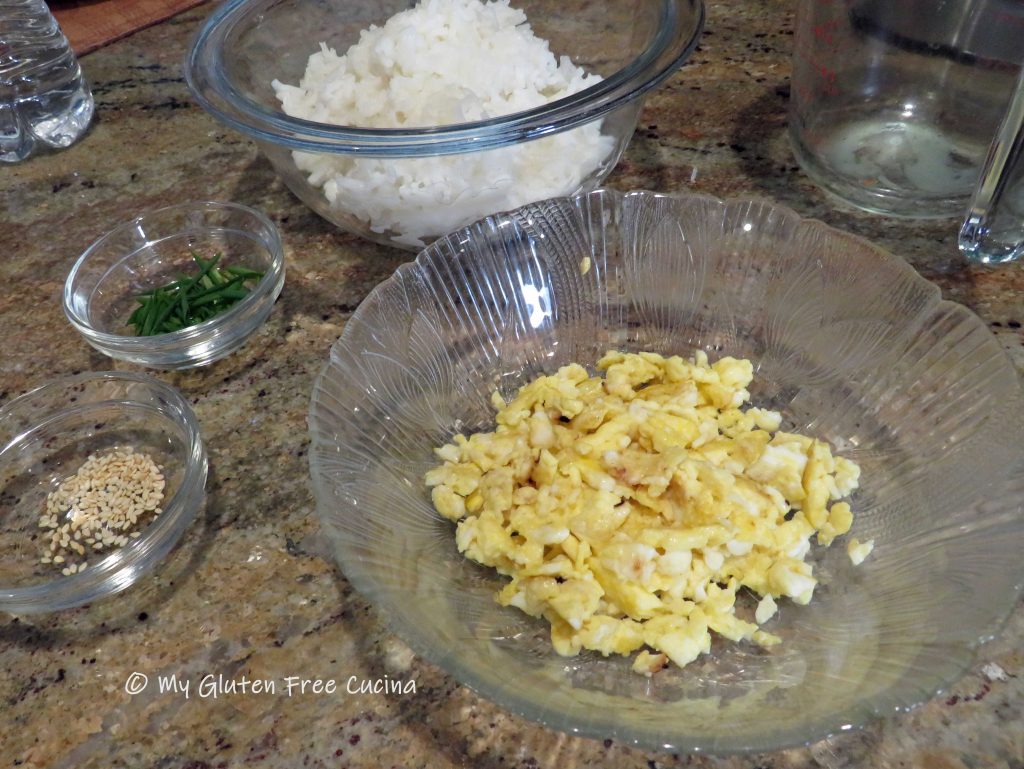
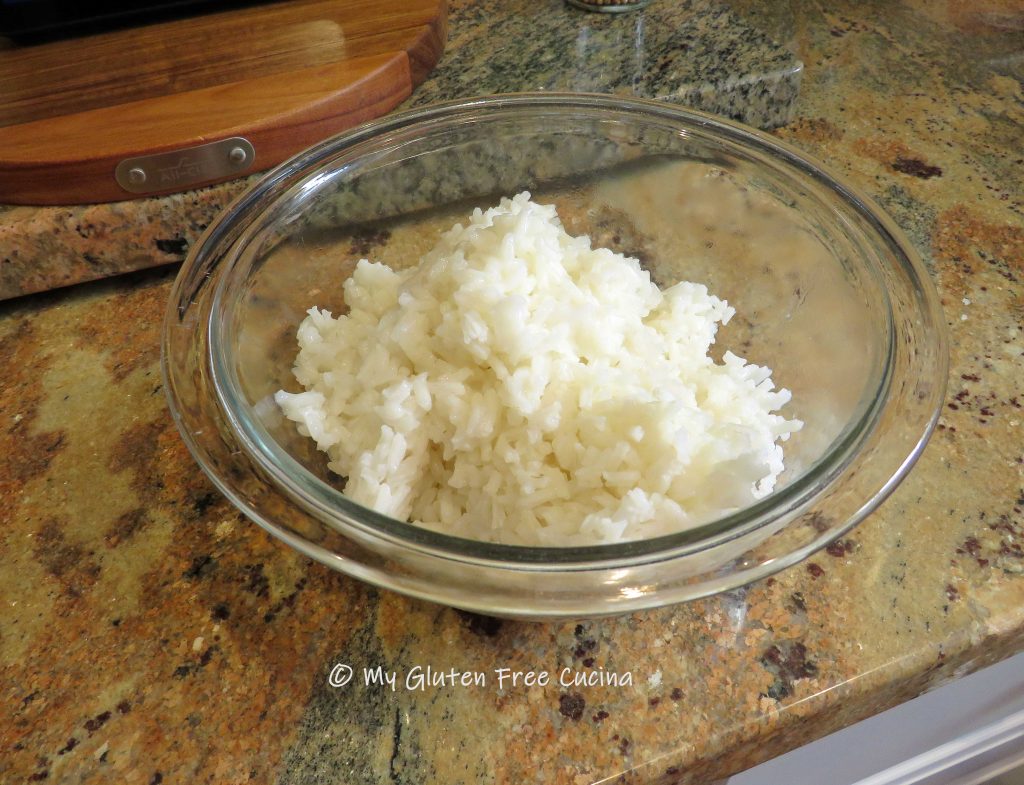
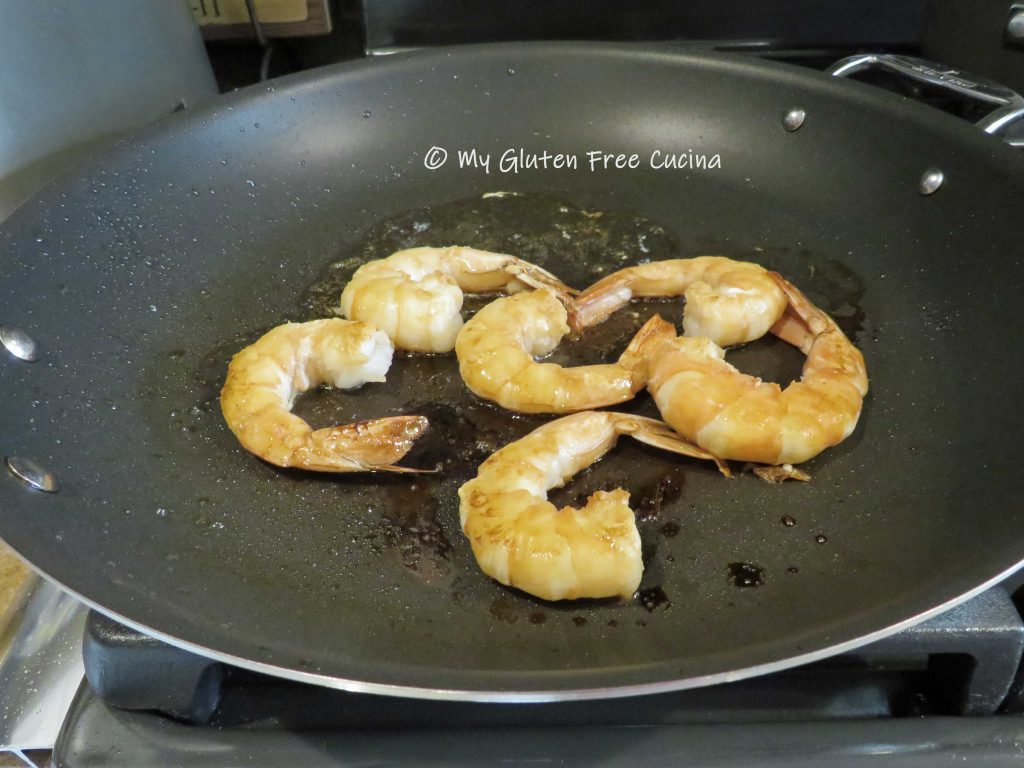
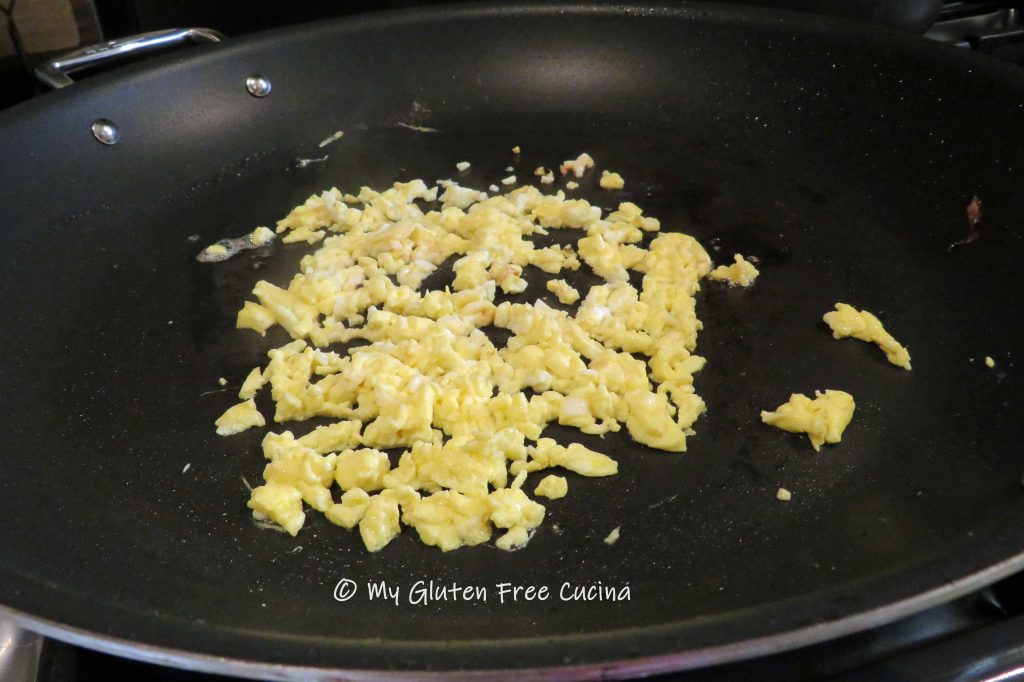
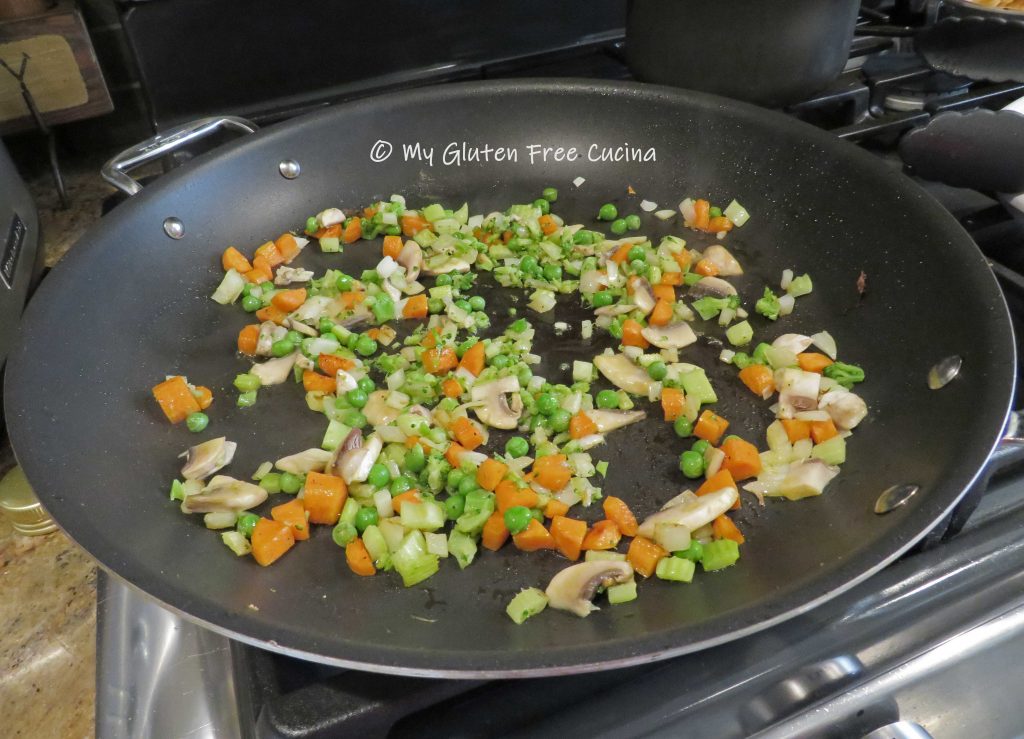
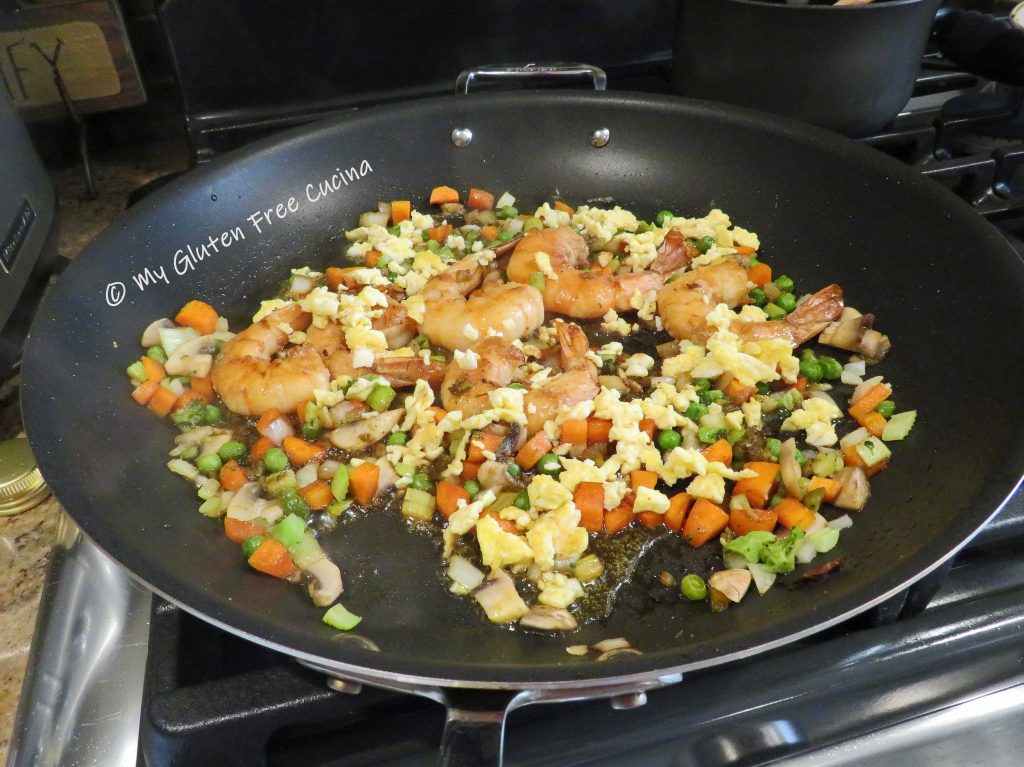
 Transfer to a
Transfer to a 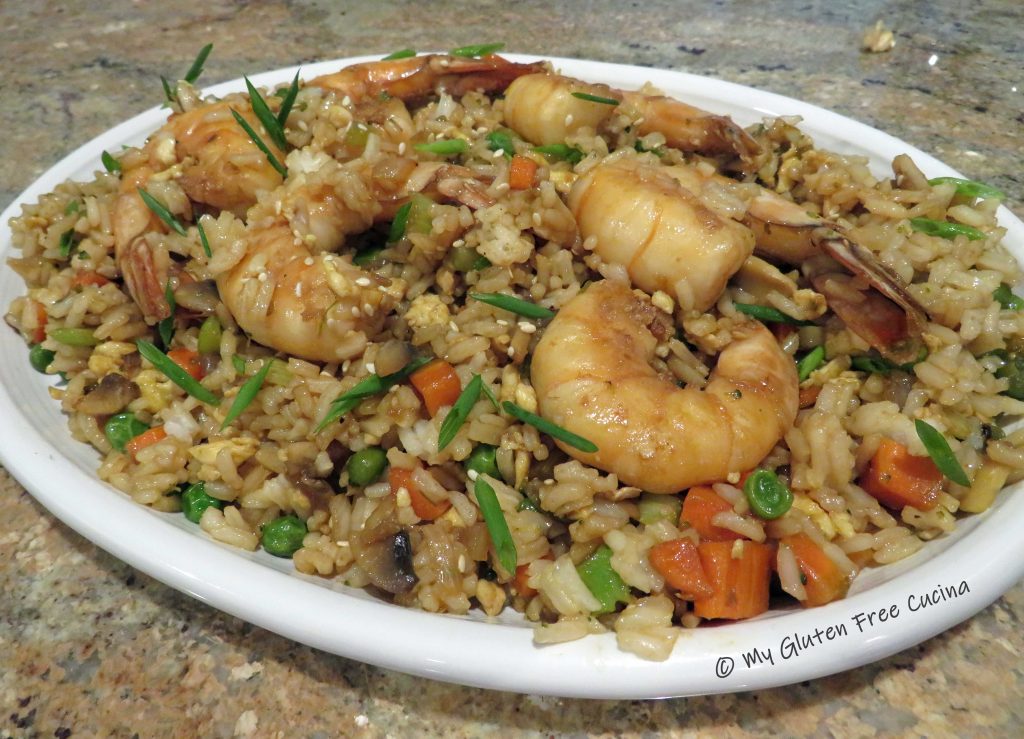
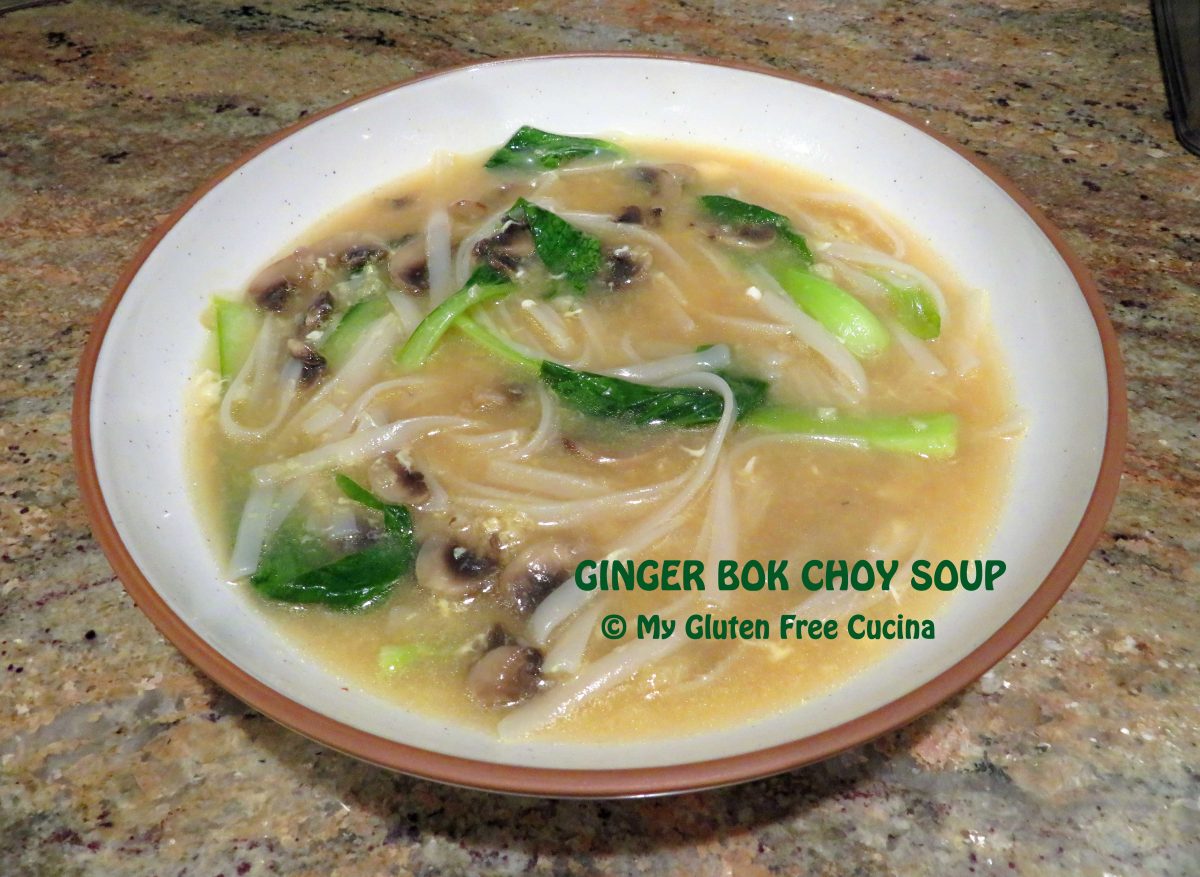
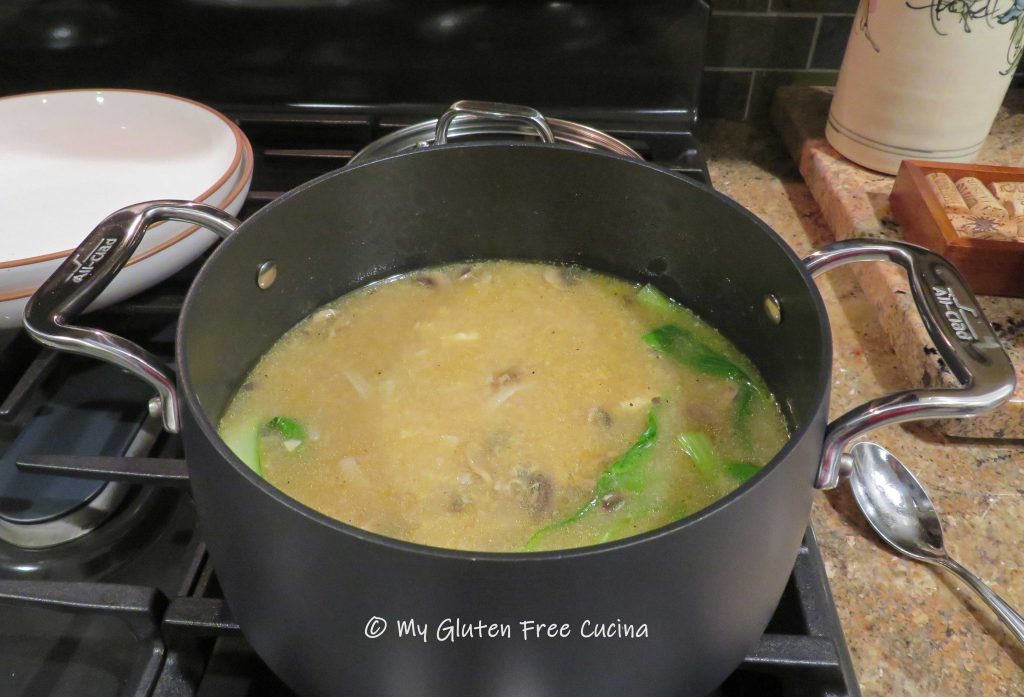 This post contains affiliate links.
This post contains affiliate links.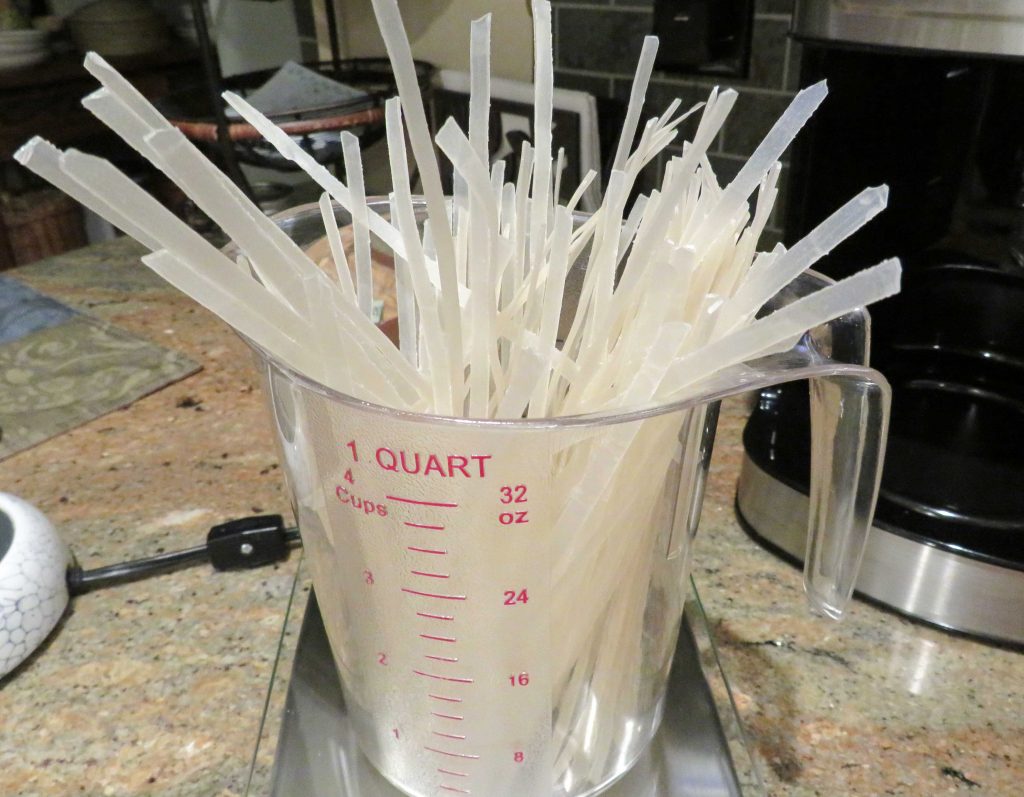 Preparation:
Preparation: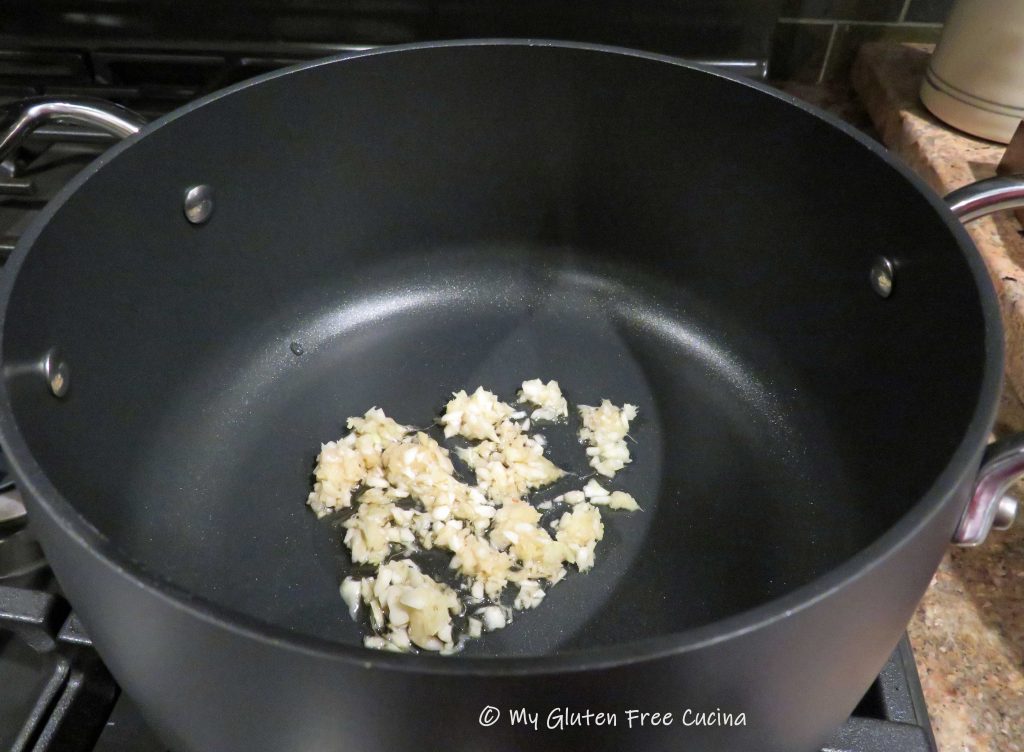
 Stir until the mushrooms release their liquid, then add the bone broth, 2 tsp. of tamari and 1 tsp. sesame oil (or more, to taste). Season with salt and pepper and bring to a simmer for 15 minutes.
Stir until the mushrooms release their liquid, then add the bone broth, 2 tsp. of tamari and 1 tsp. sesame oil (or more, to taste). Season with salt and pepper and bring to a simmer for 15 minutes.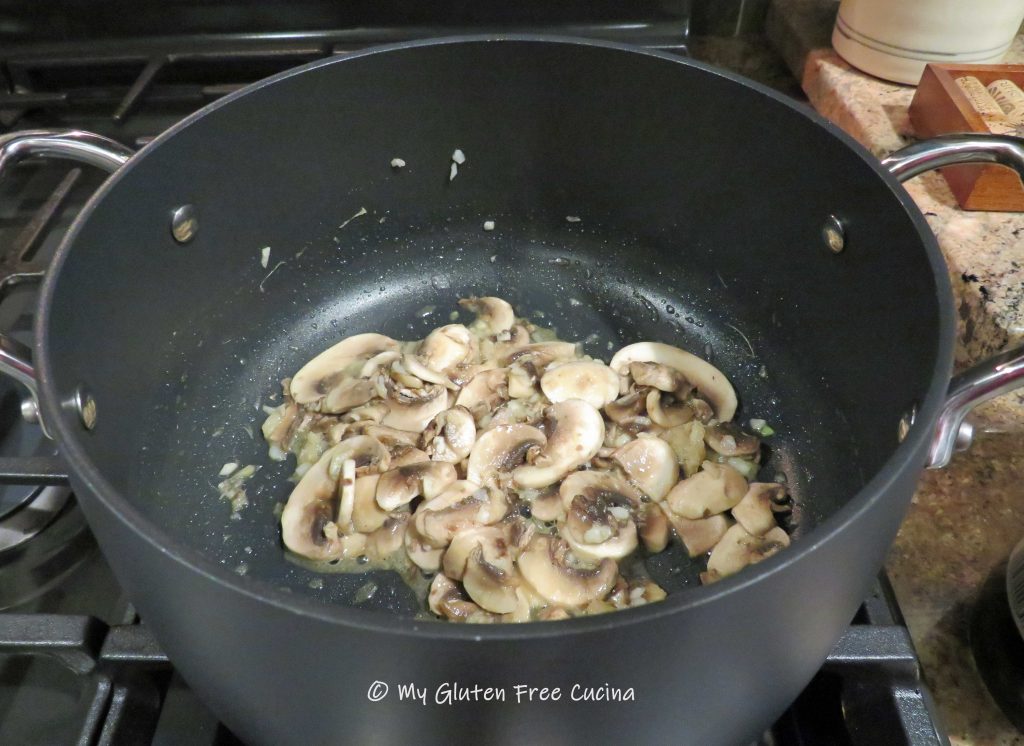
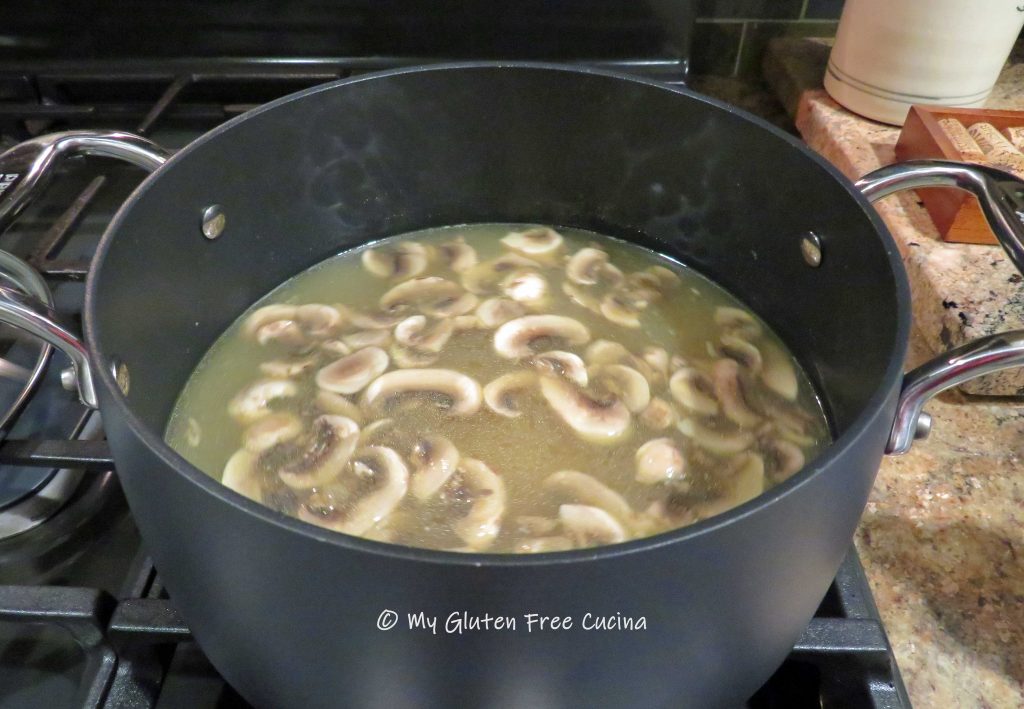 Trim away the tough, lower part of the Bok choy, then rinse and halve the leaves. Stir them into the soup to wilt and lower the heat to keep warm.
Trim away the tough, lower part of the Bok choy, then rinse and halve the leaves. Stir them into the soup to wilt and lower the heat to keep warm.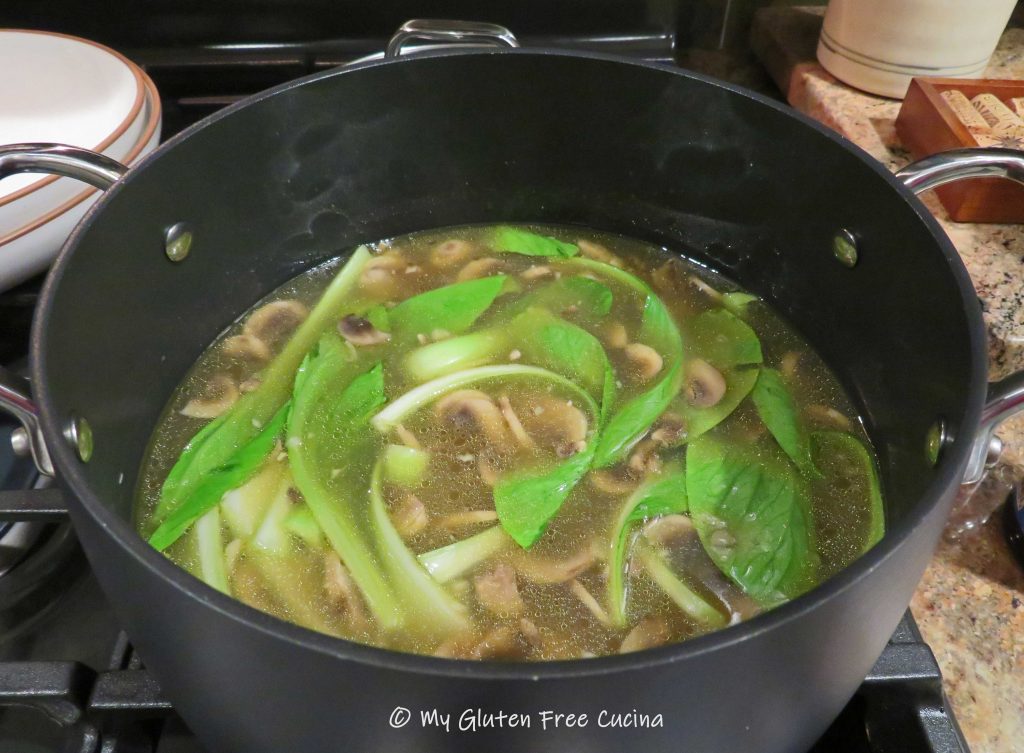 Cook the rice noodles in a separate pan according to package directions. Just prior to serving, drizzle the beaten egg into the soup and swirl it around with a whisk. Add the cooked rice noodles.
Cook the rice noodles in a separate pan according to package directions. Just prior to serving, drizzle the beaten egg into the soup and swirl it around with a whisk. Add the cooked rice noodles. Ladle into
Ladle into 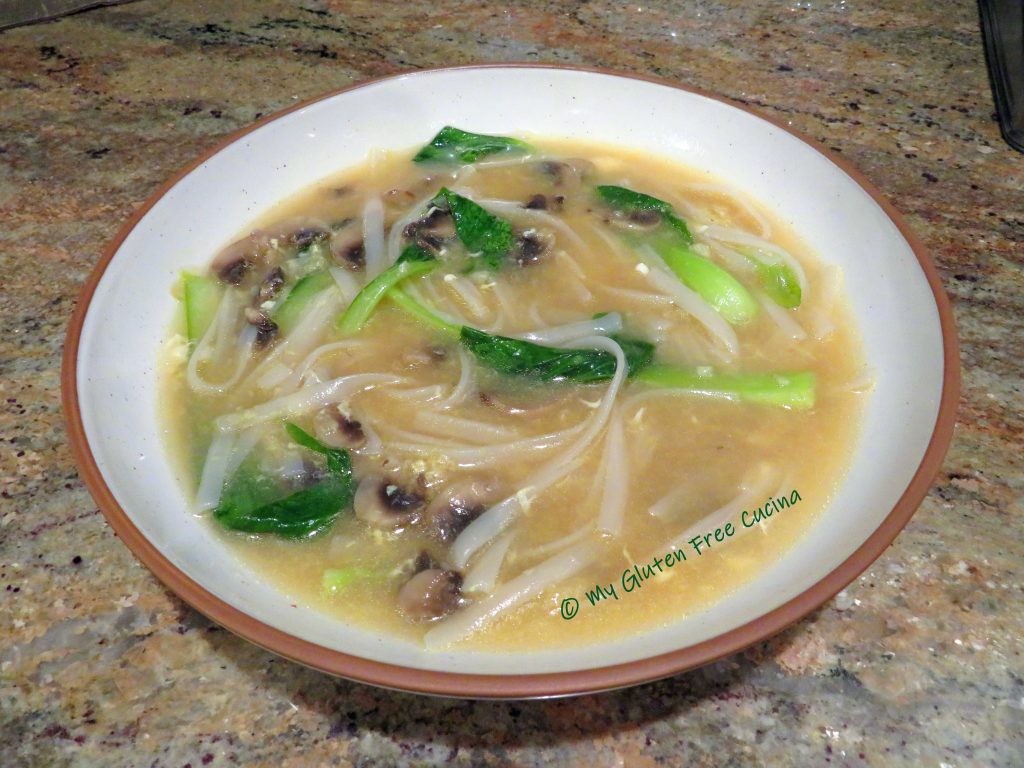
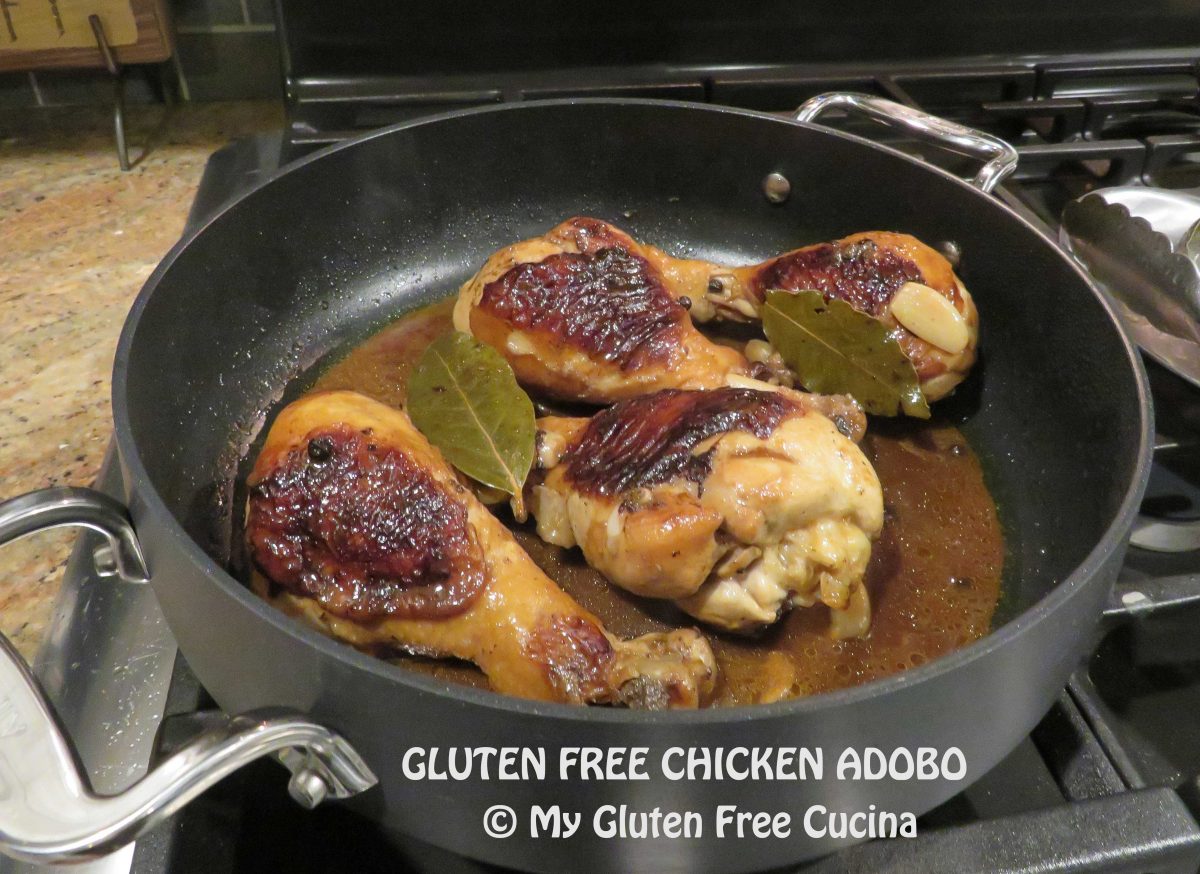
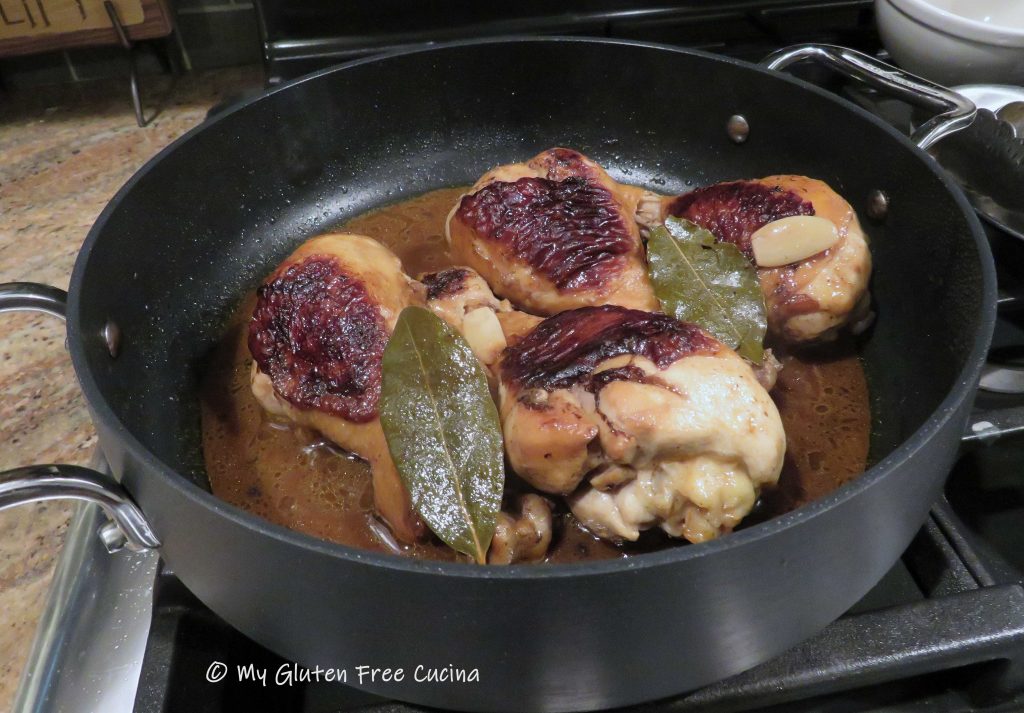
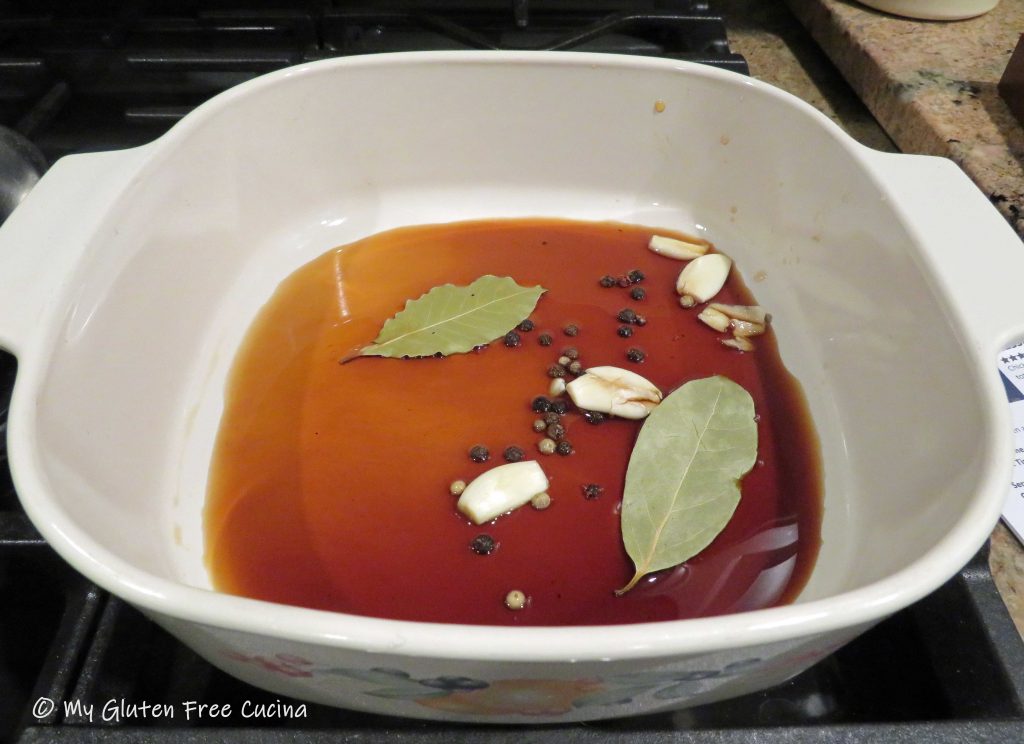


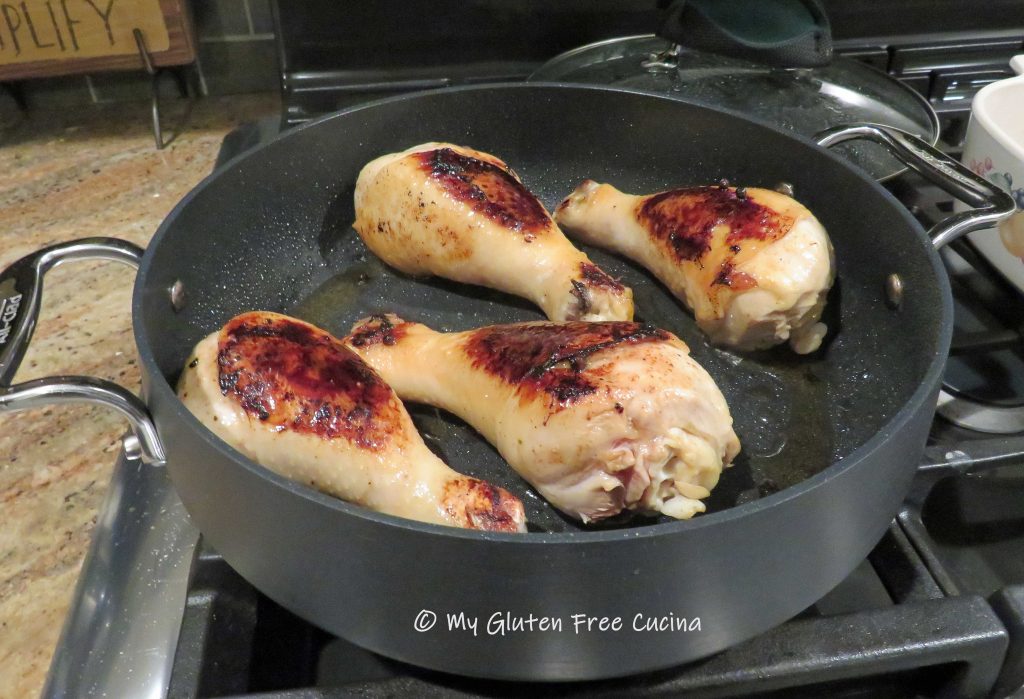
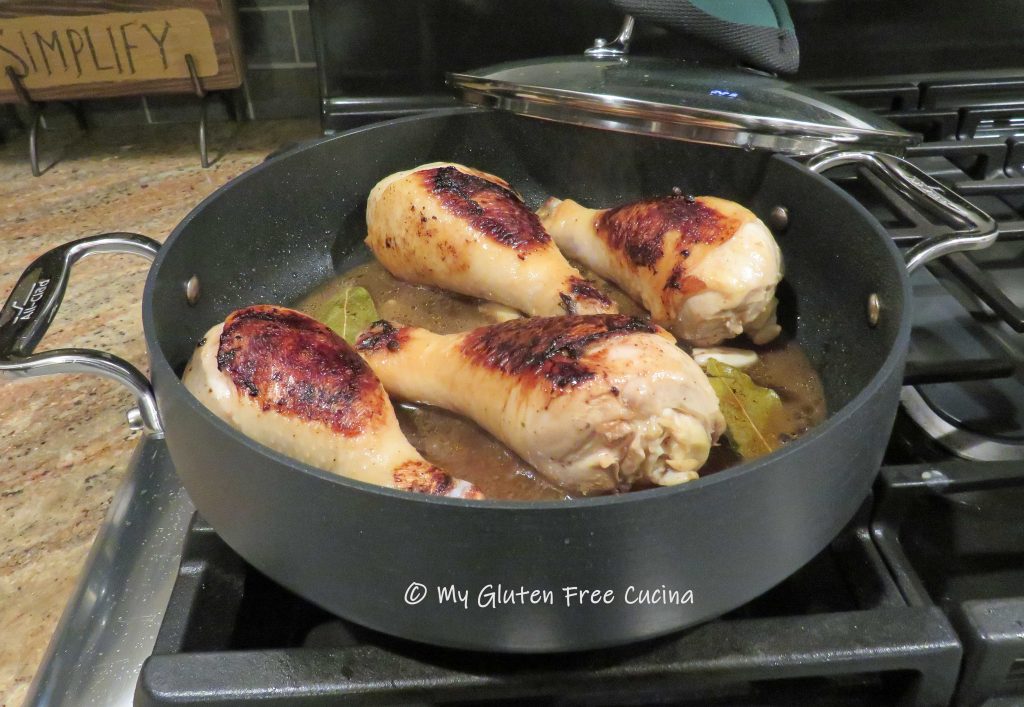
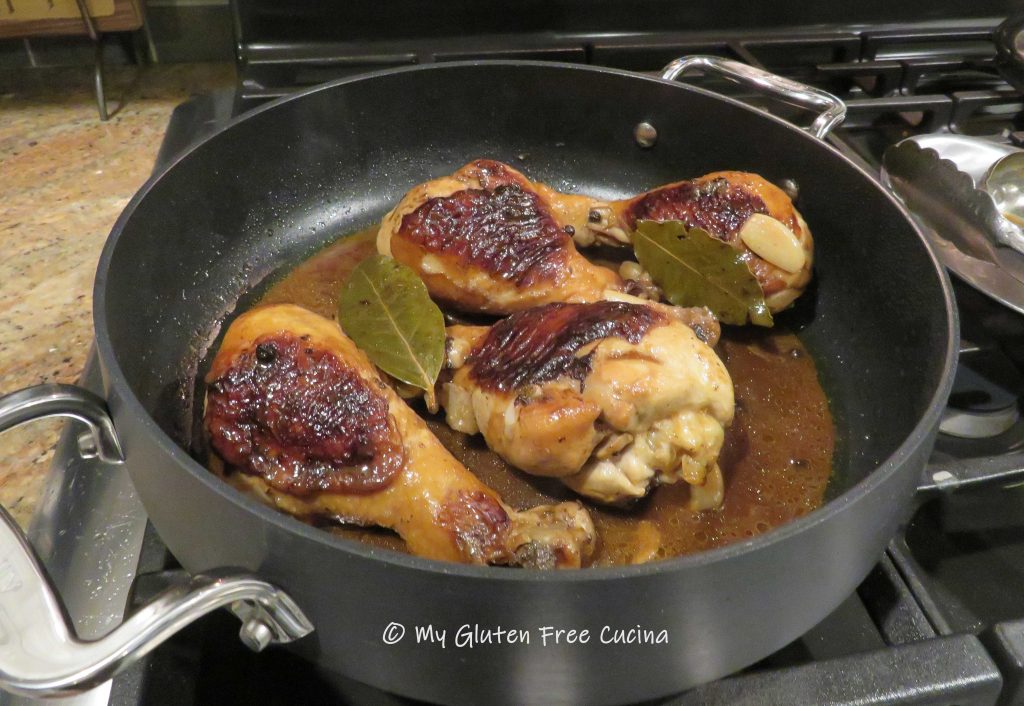
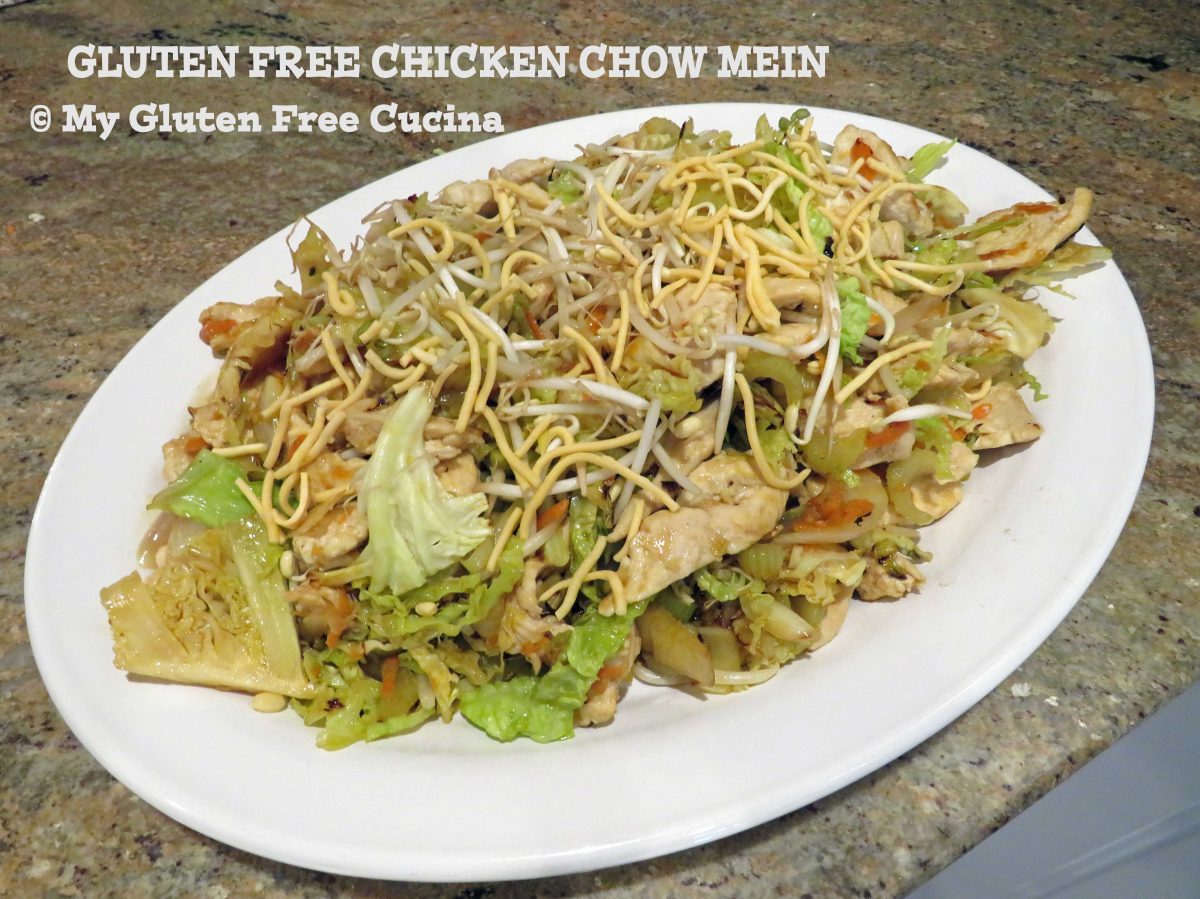
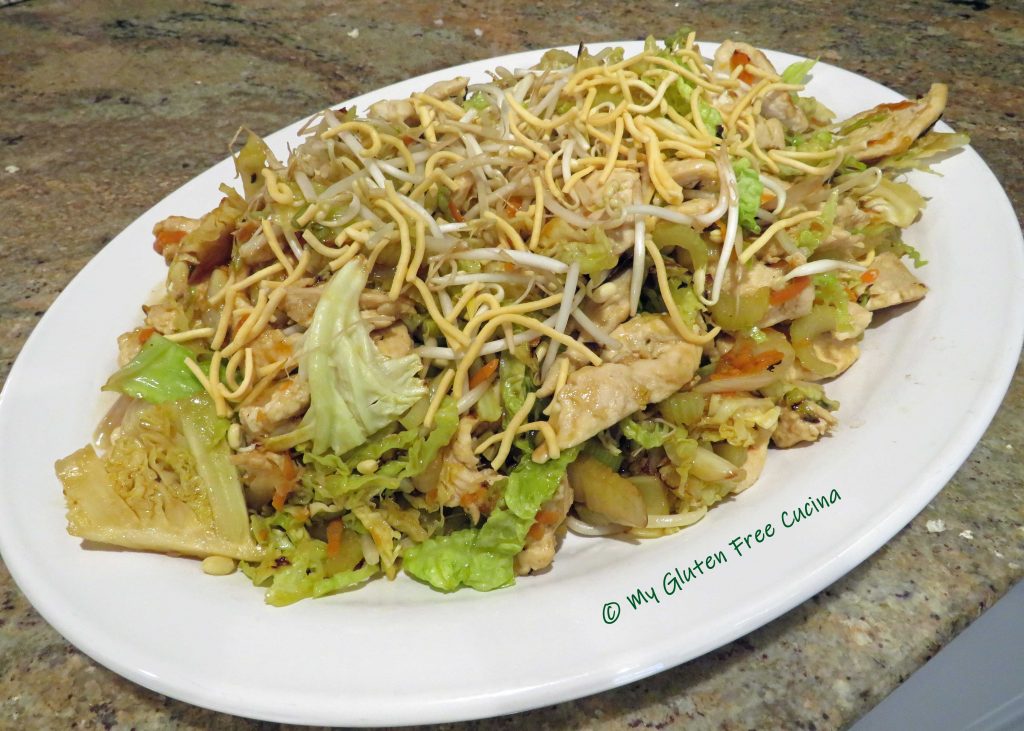
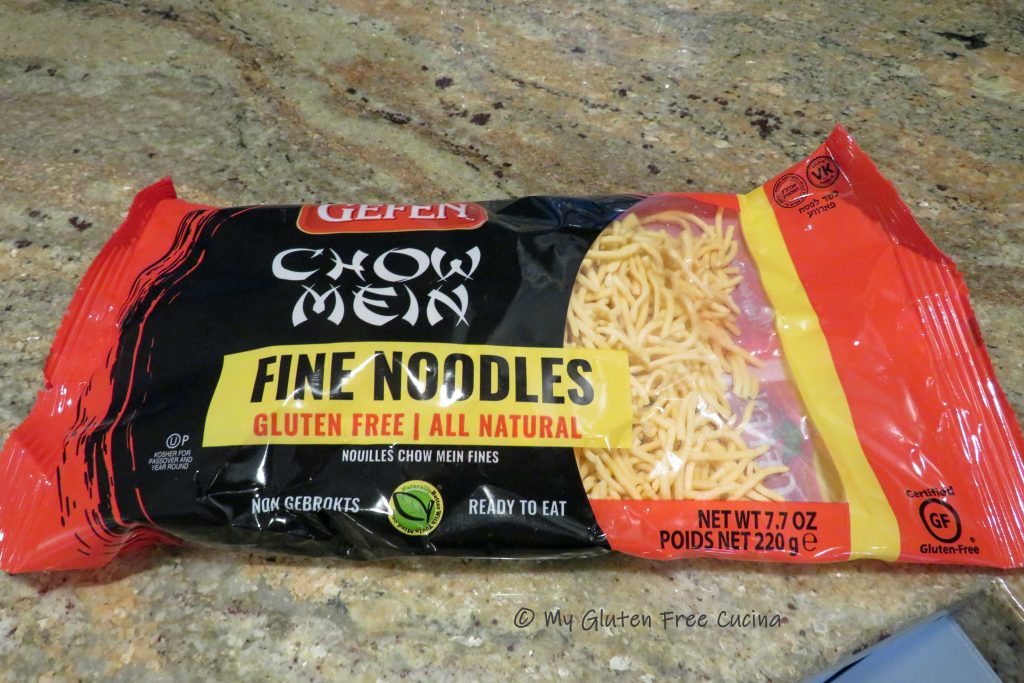
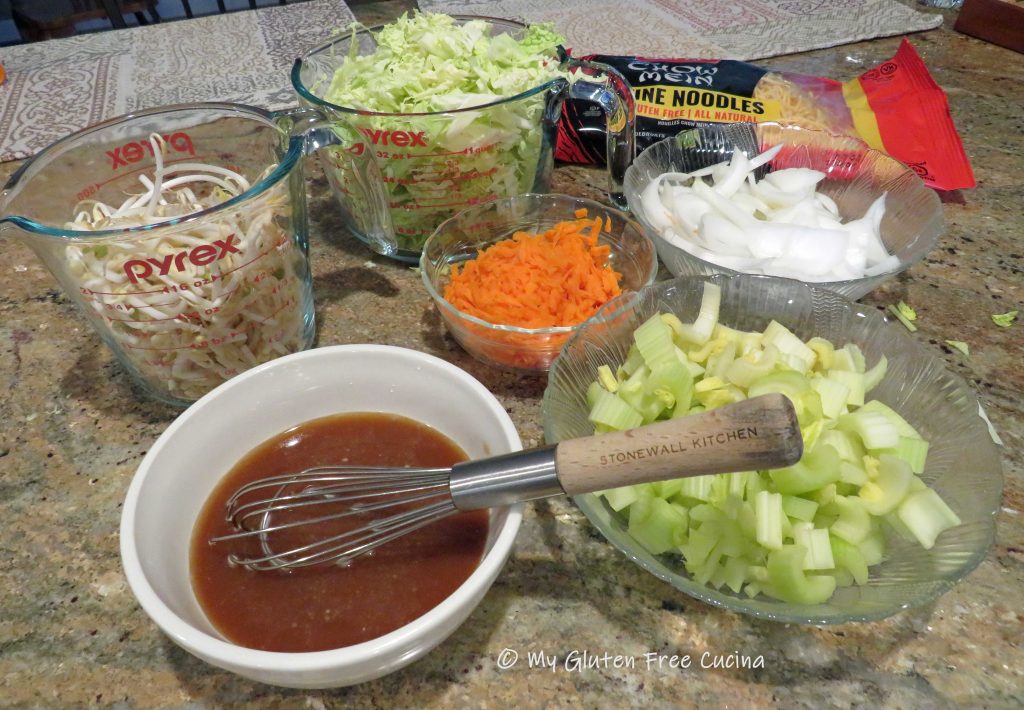
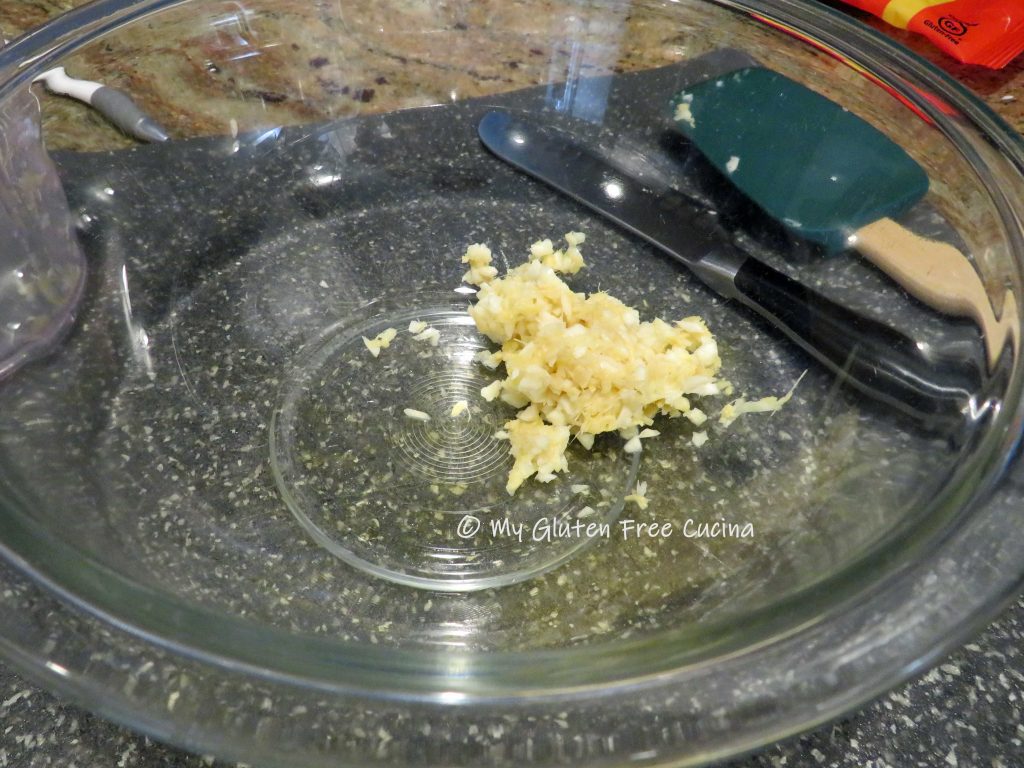

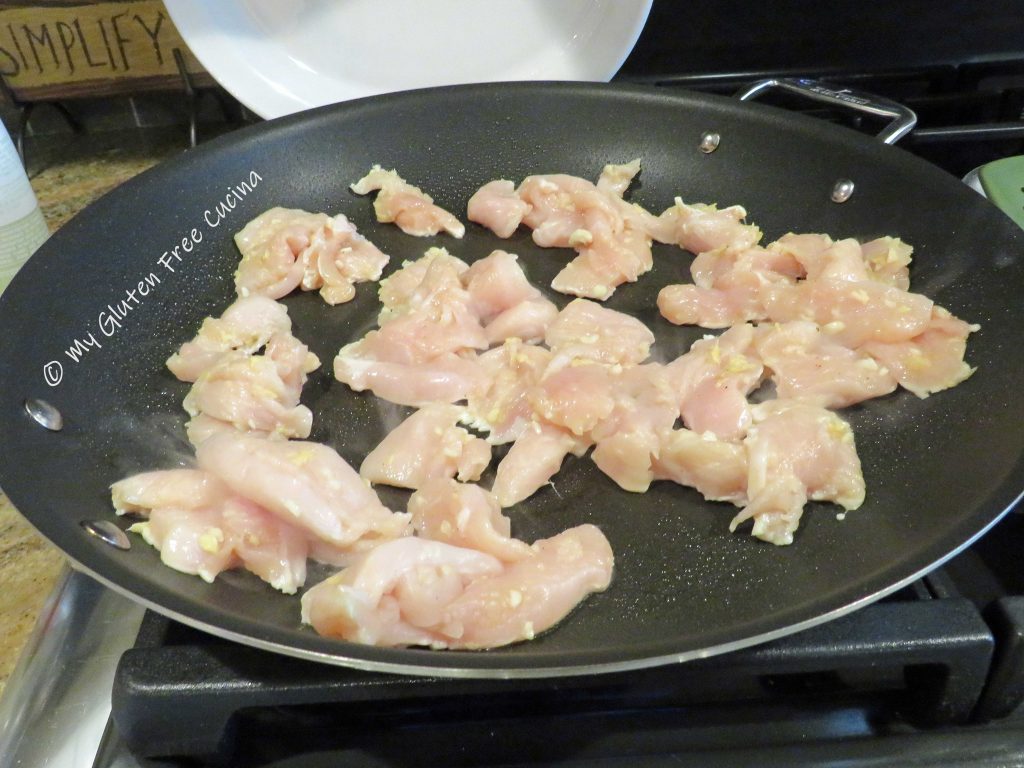
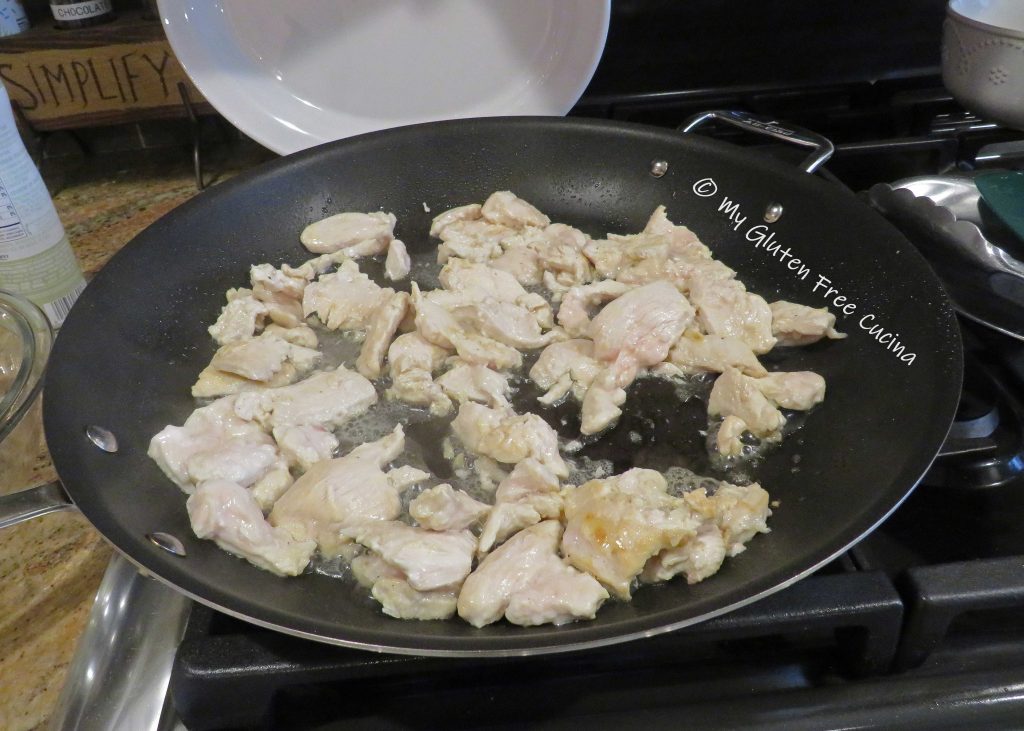
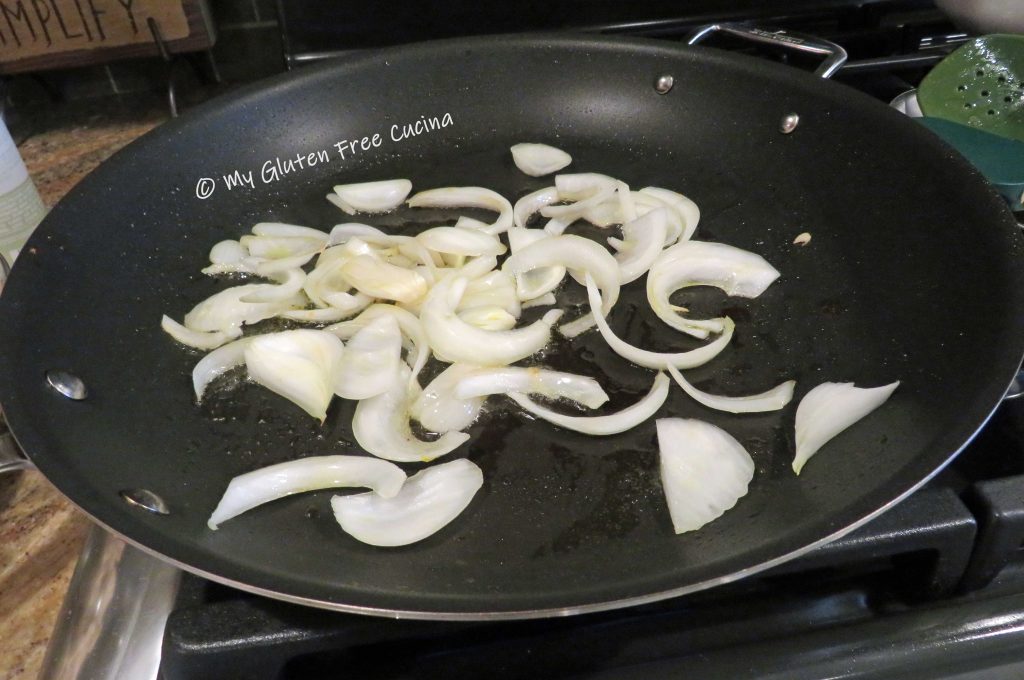
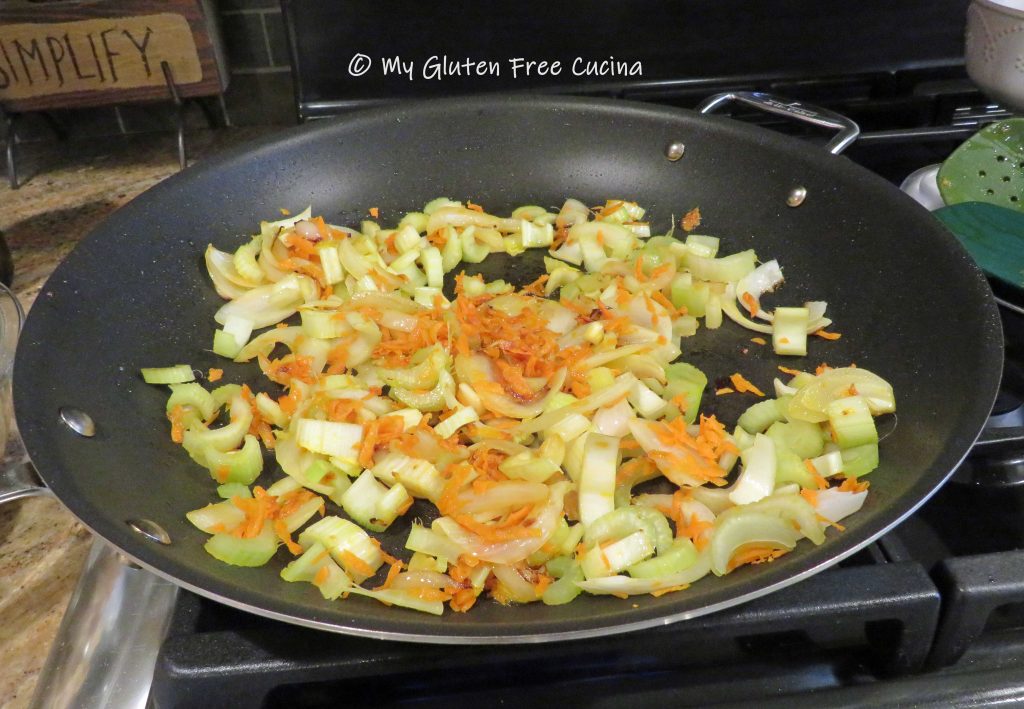
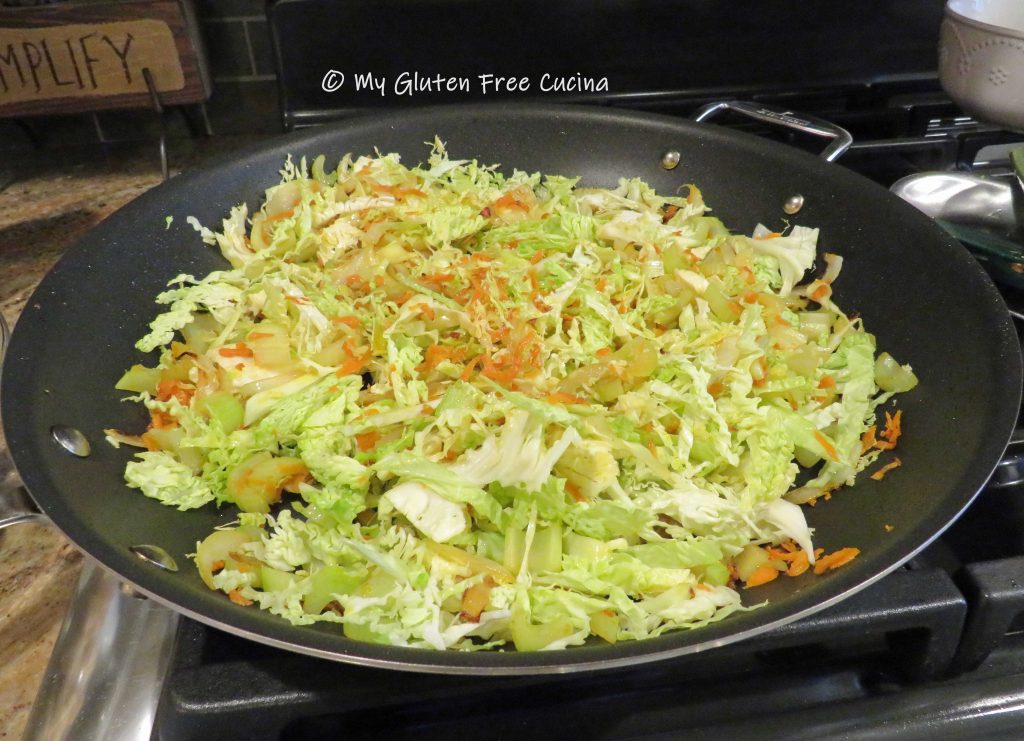
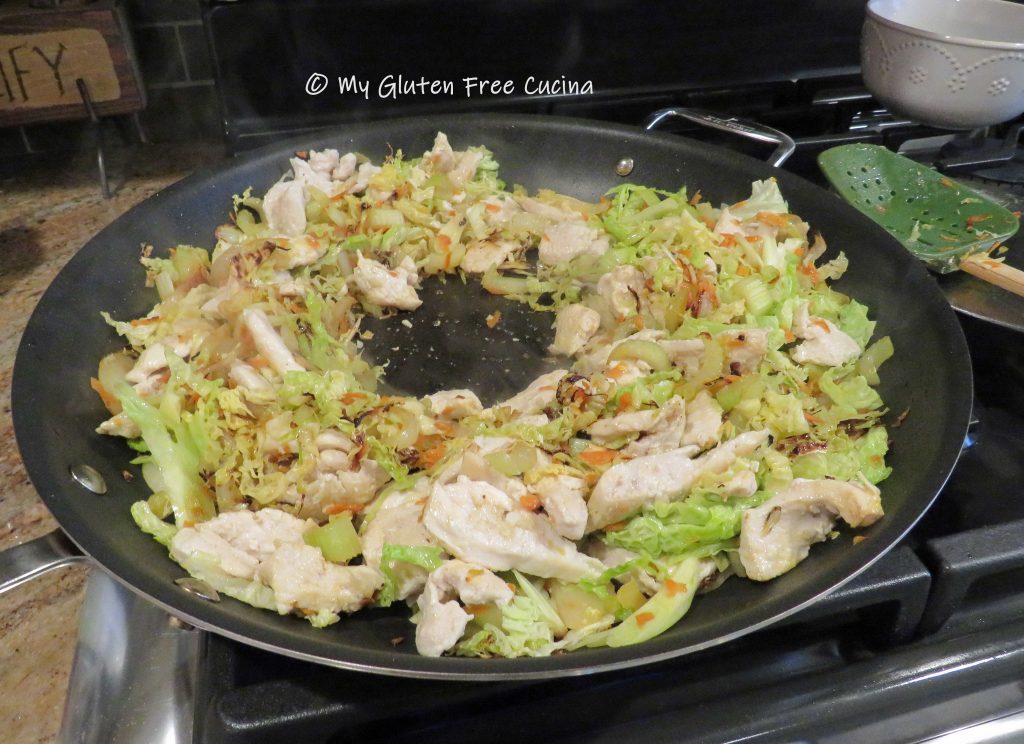
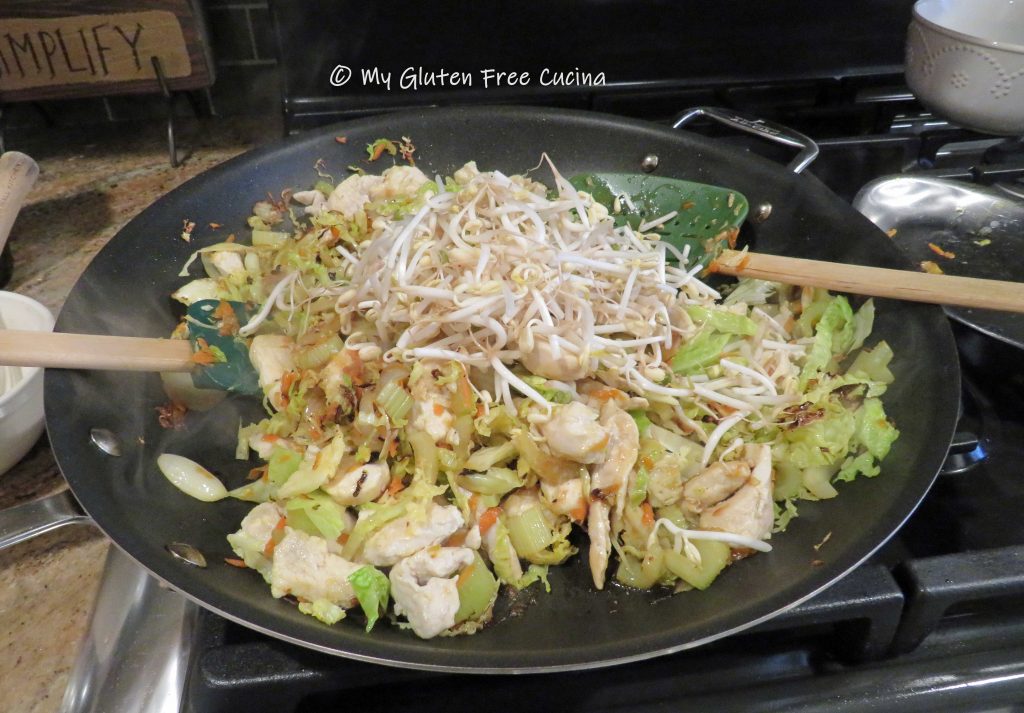
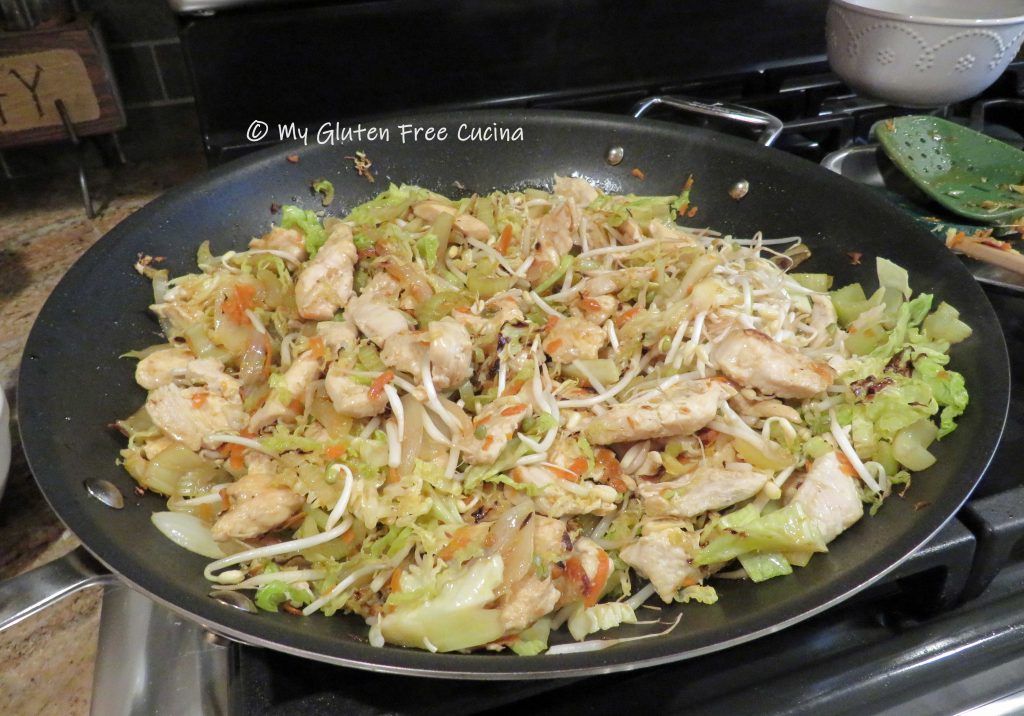
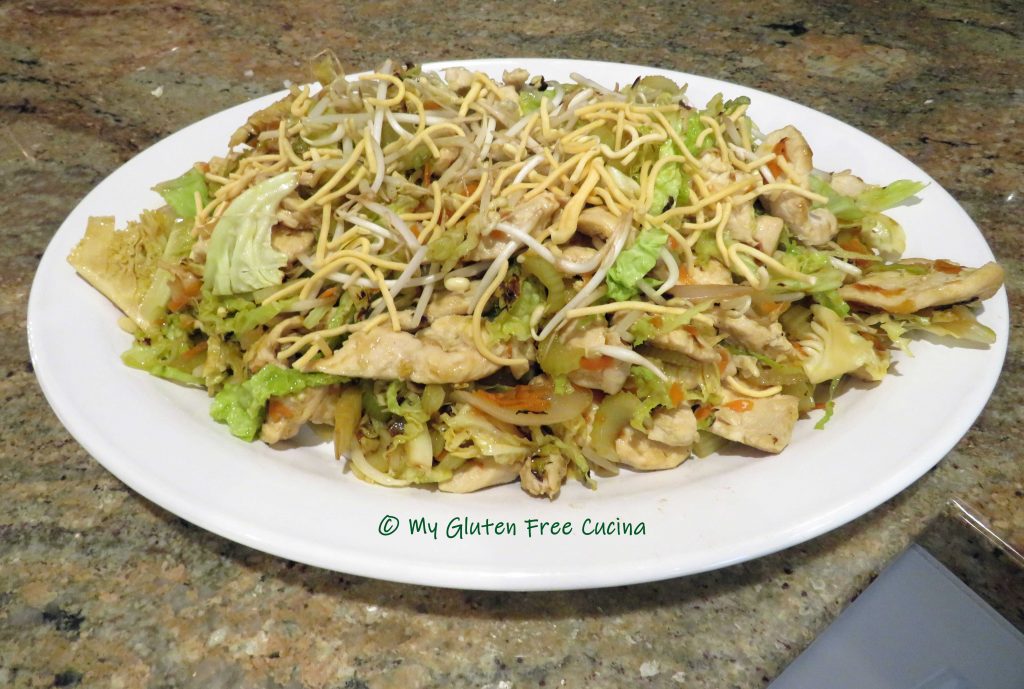
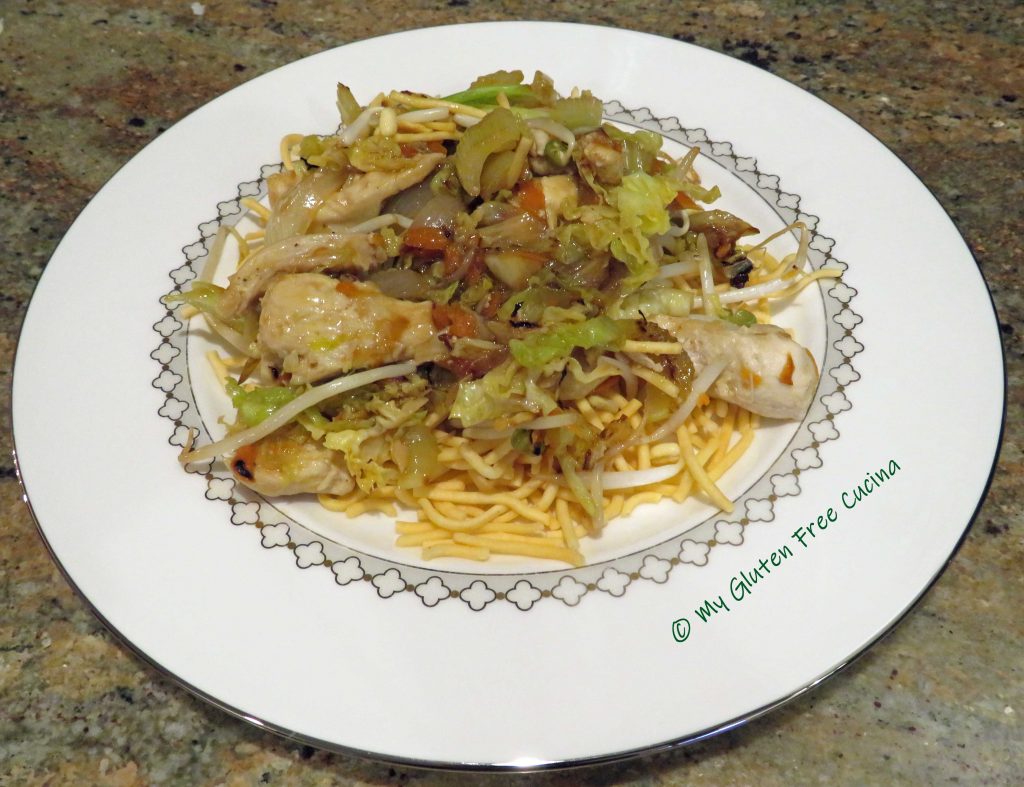
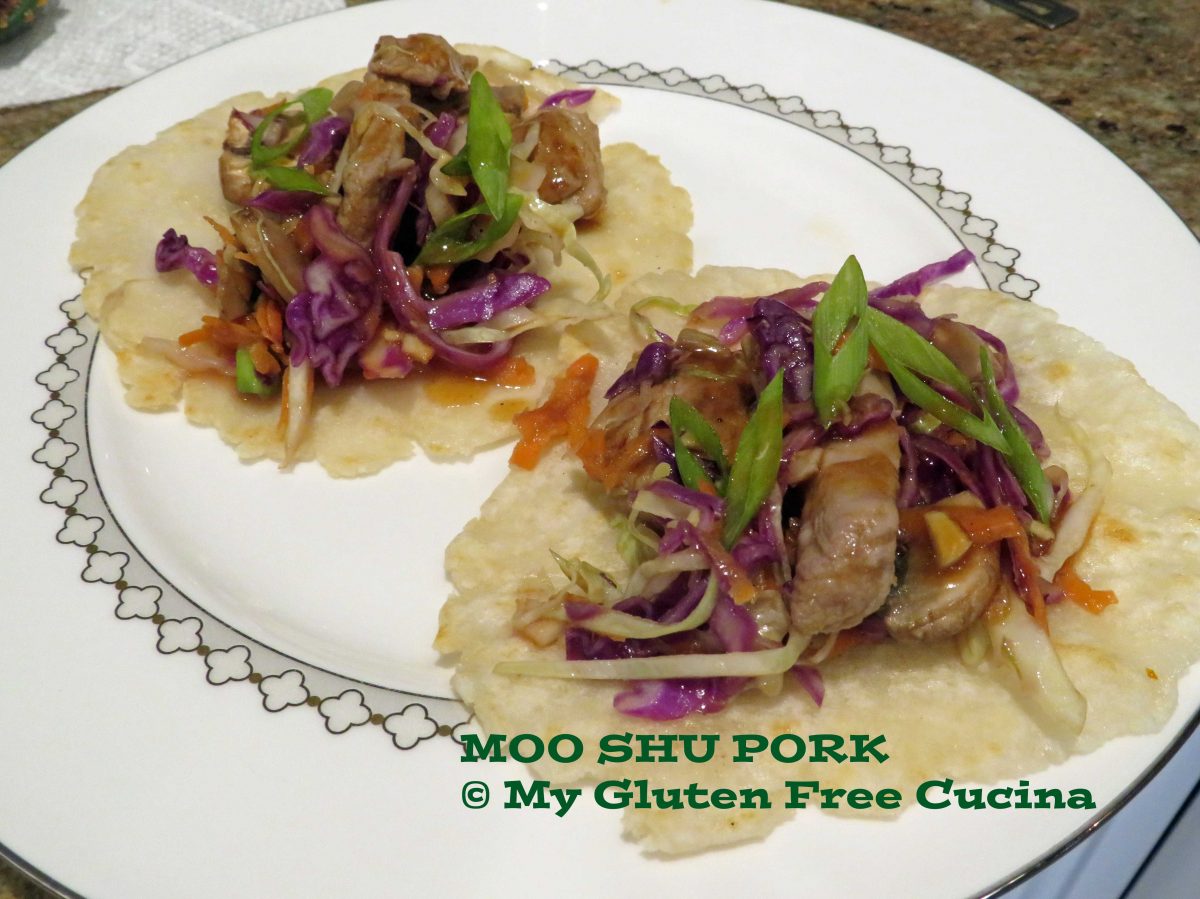












 Use tongs to turn each piece to quickly brown both sides. The pork does not have to be cooked through at this point; it will finish cooking with the veggies.
Use tongs to turn each piece to quickly brown both sides. The pork does not have to be cooked through at this point; it will finish cooking with the veggies. Add all of the vegetables to the skillet.
Add all of the vegetables to the skillet.

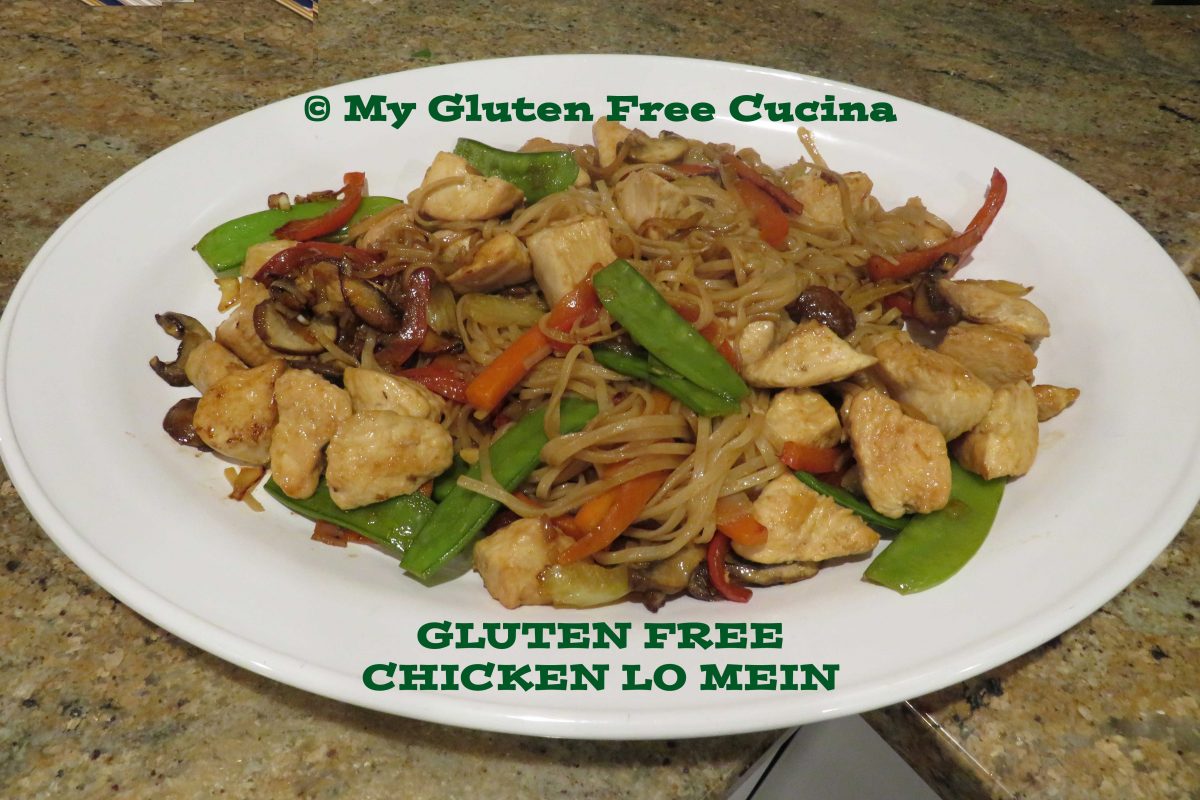
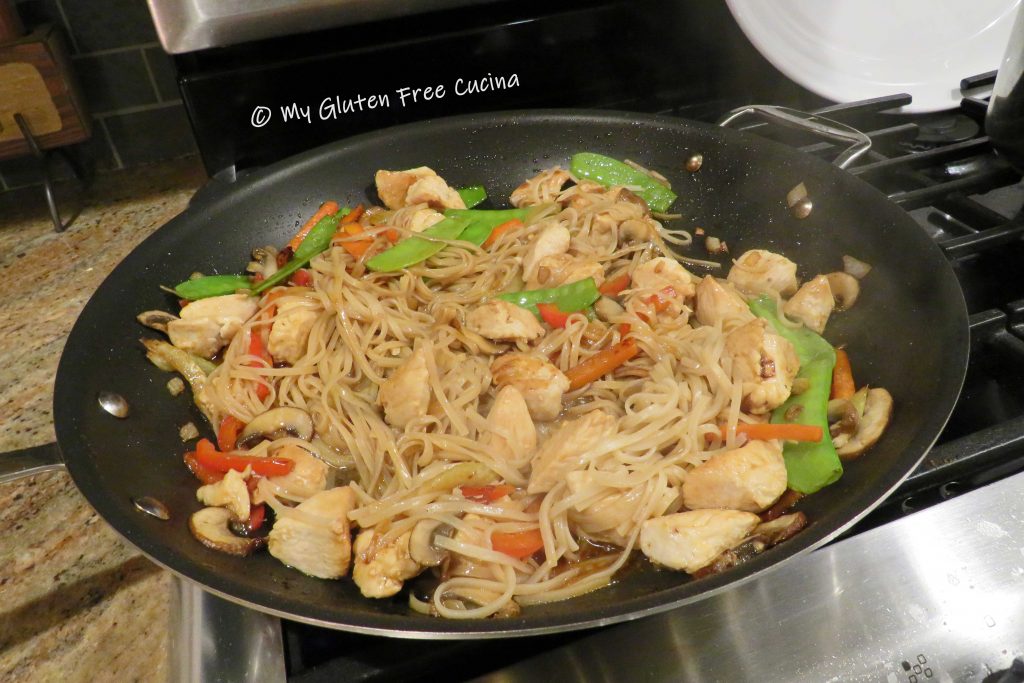


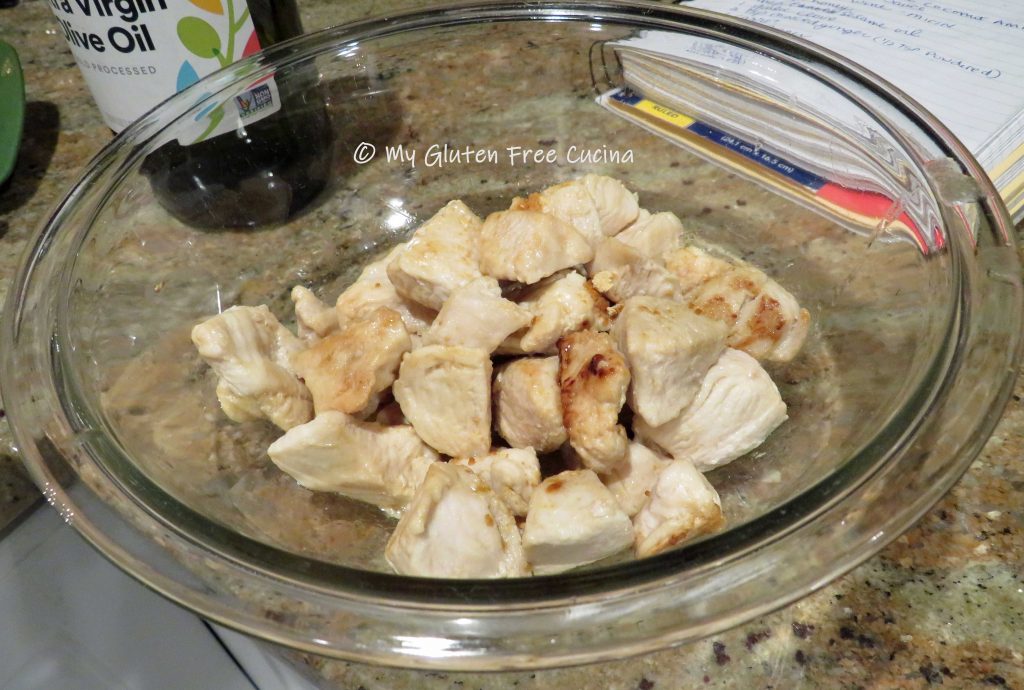
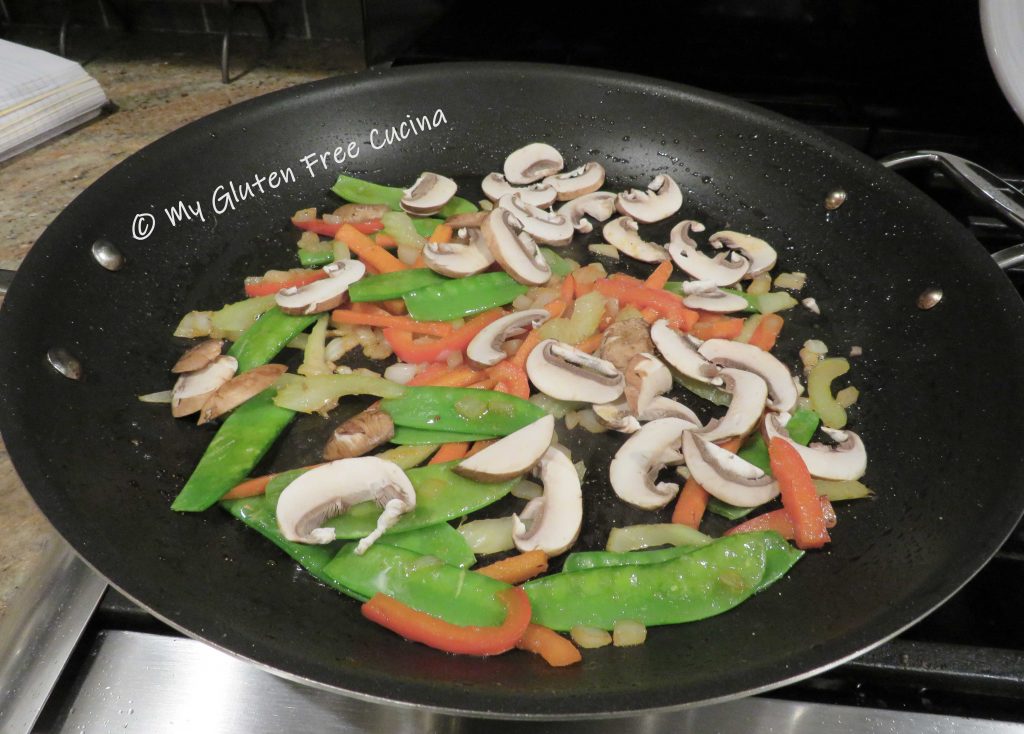
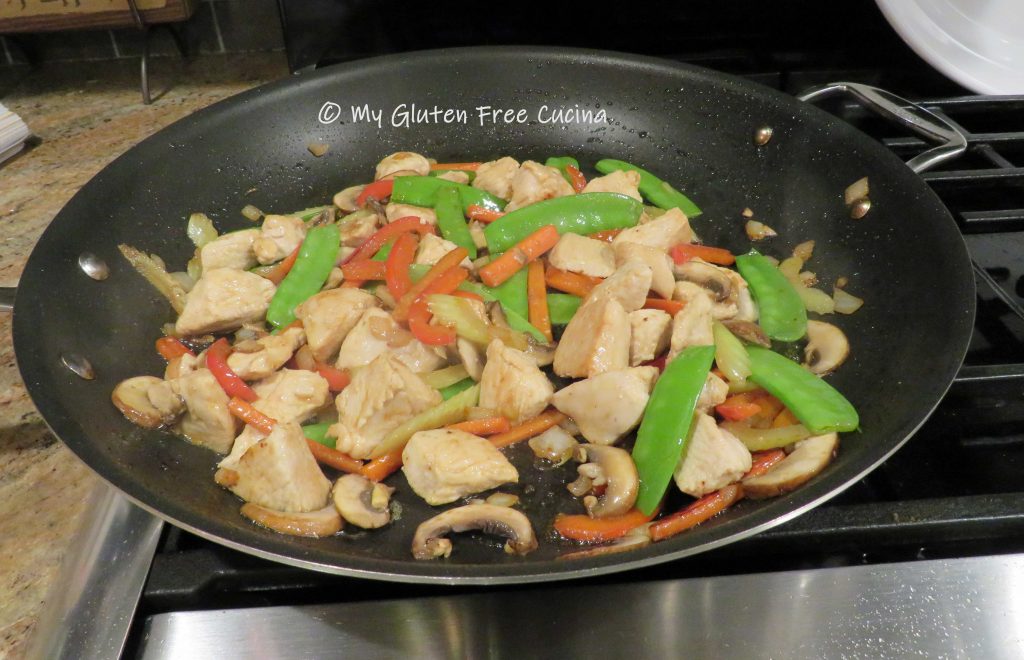
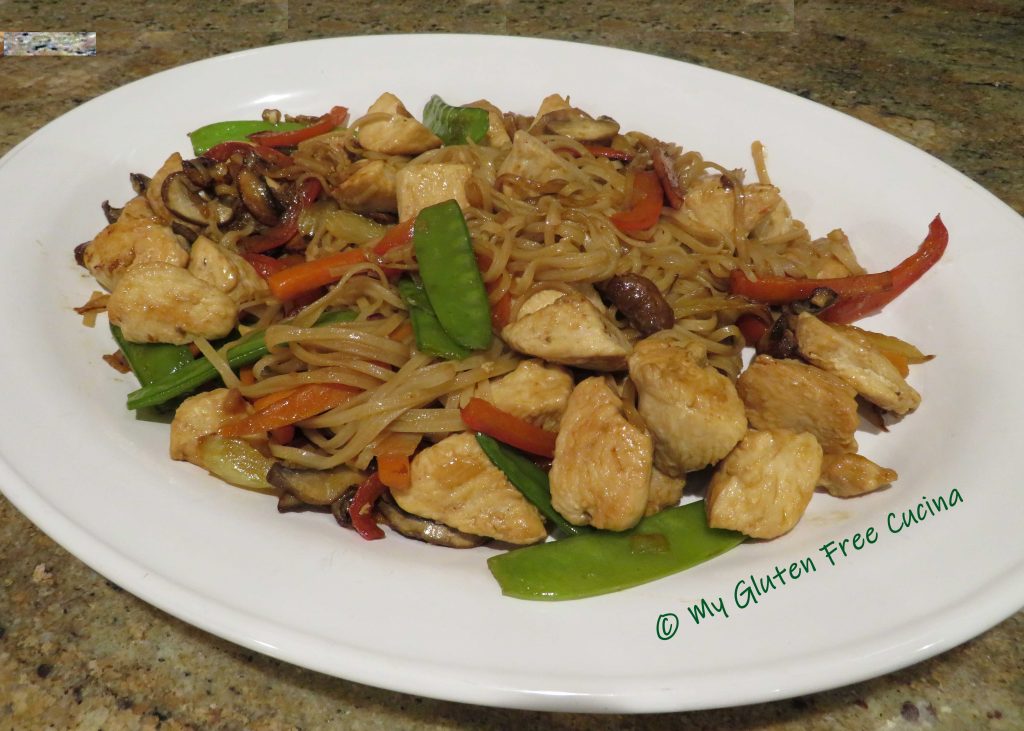
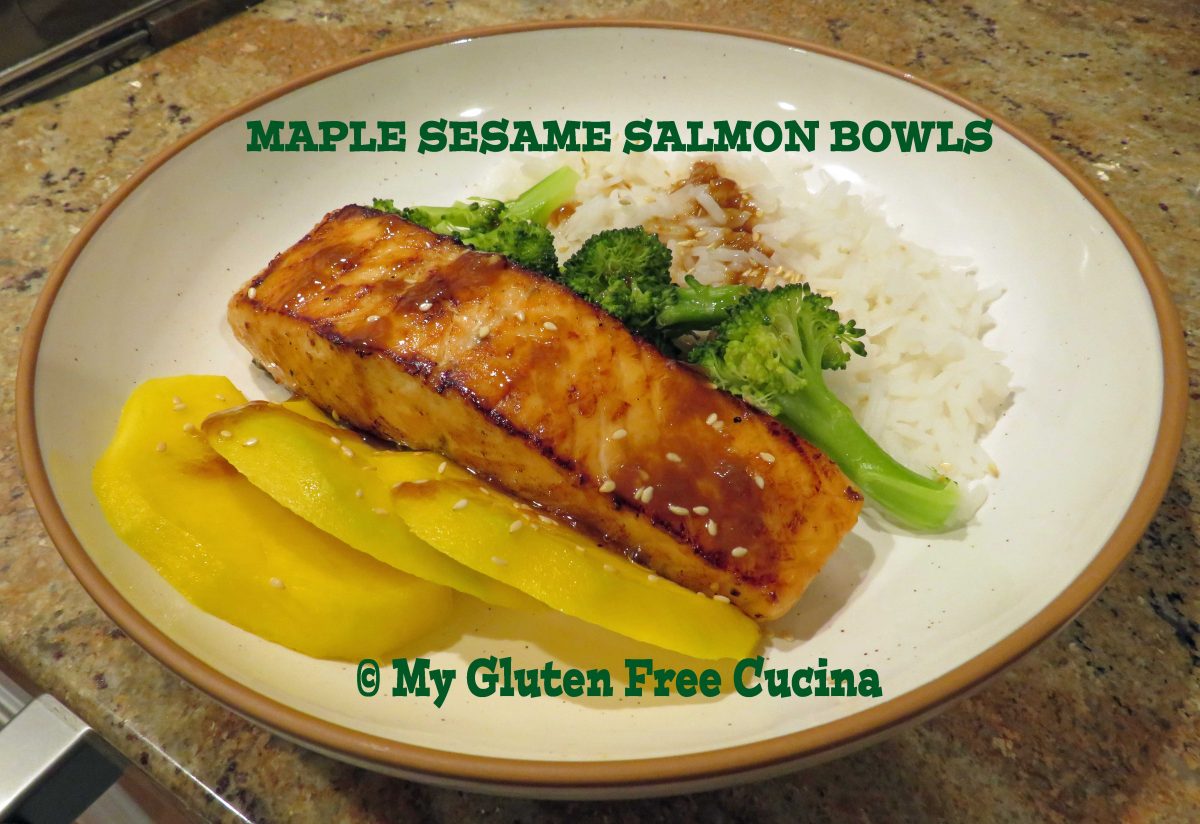
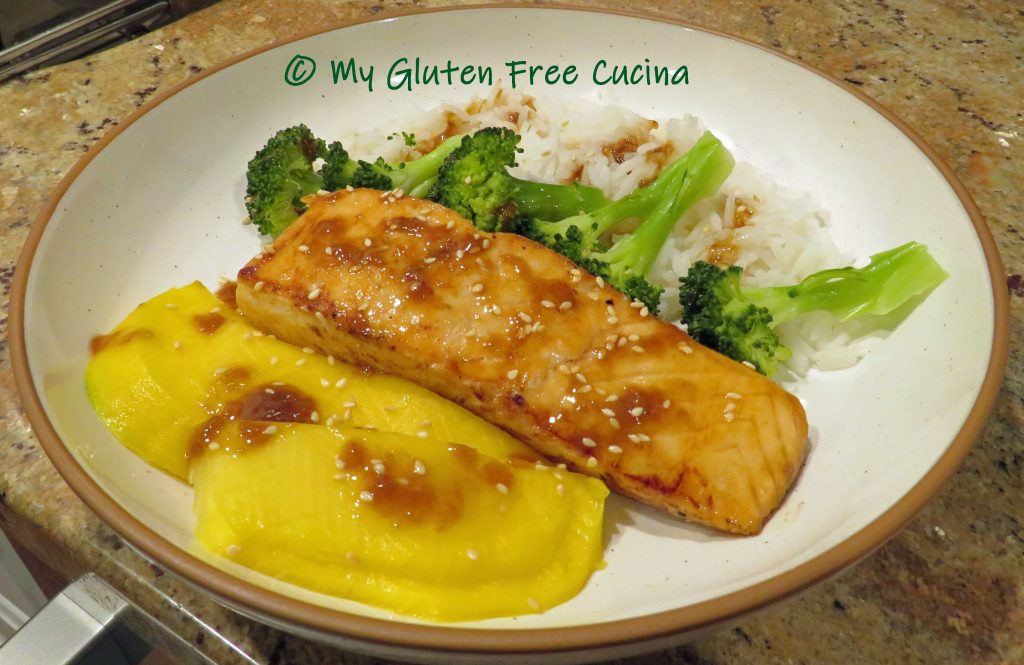
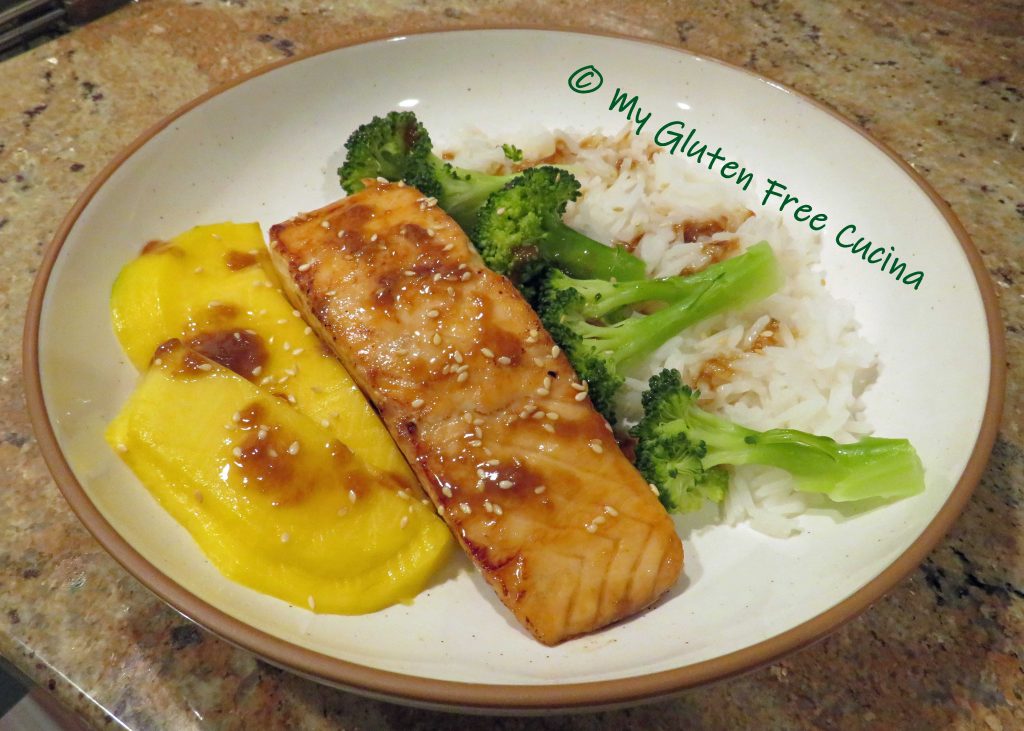

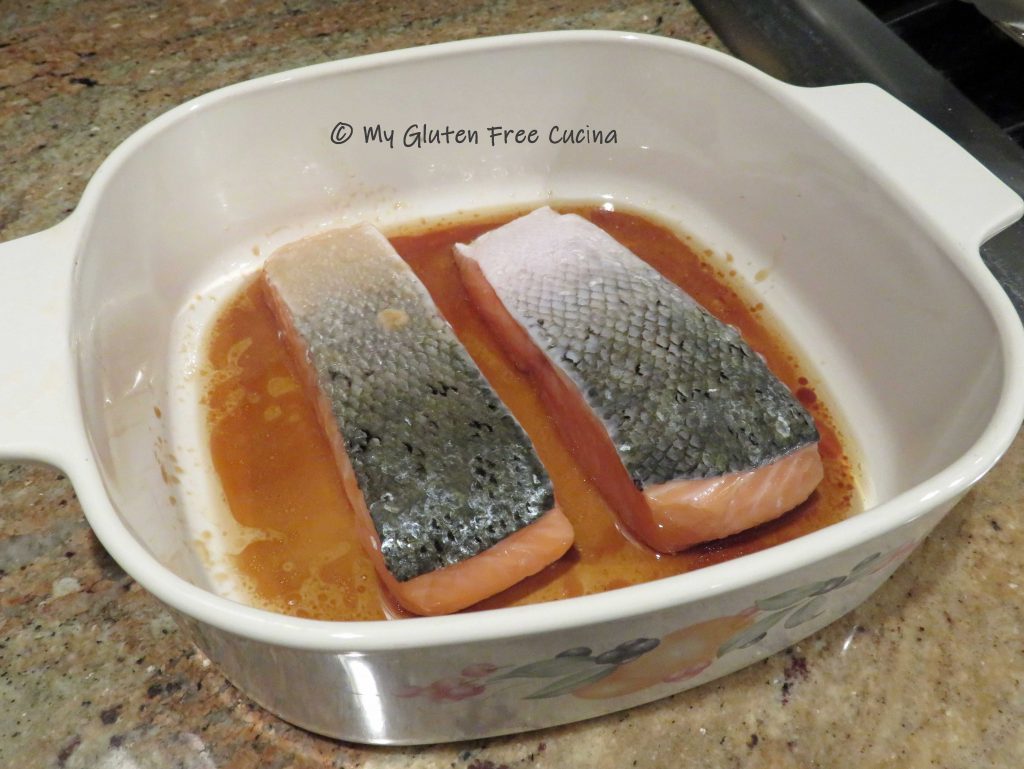


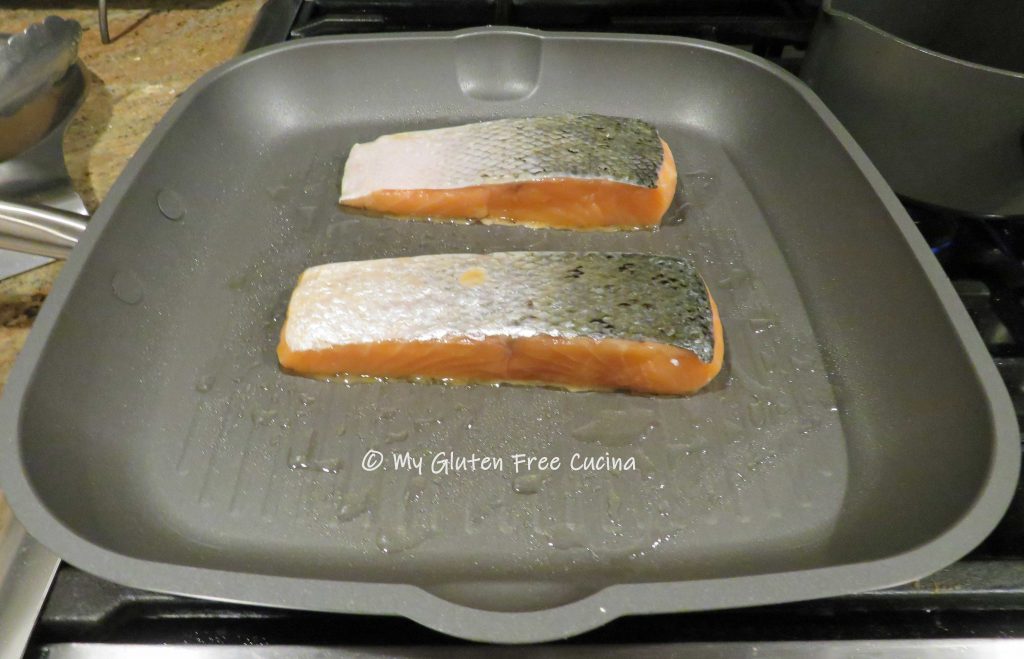

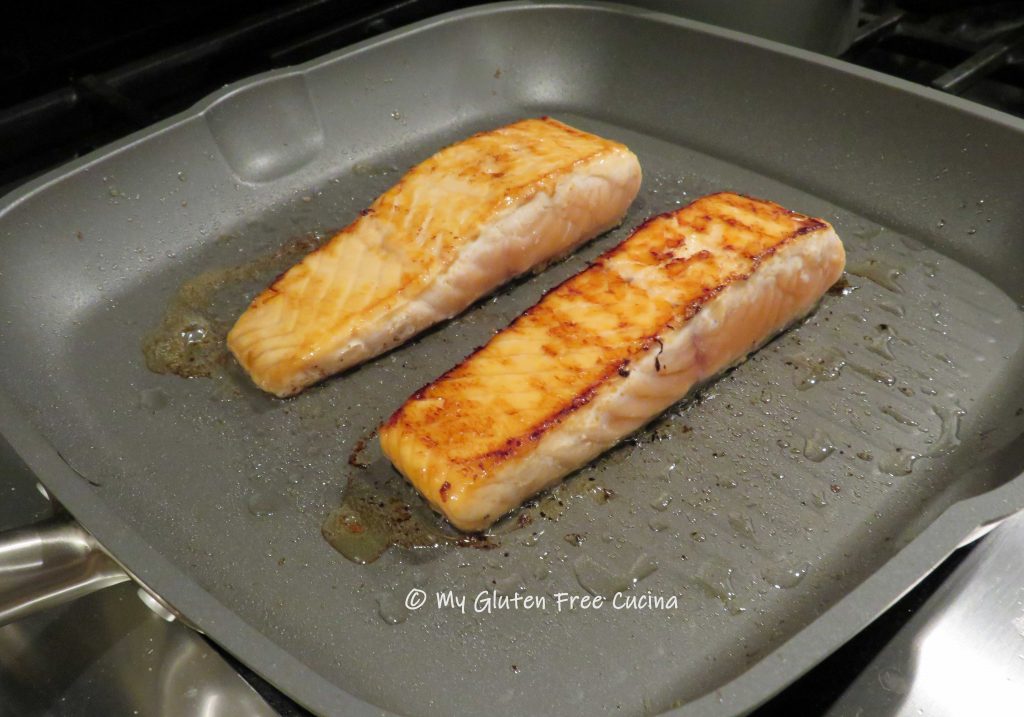
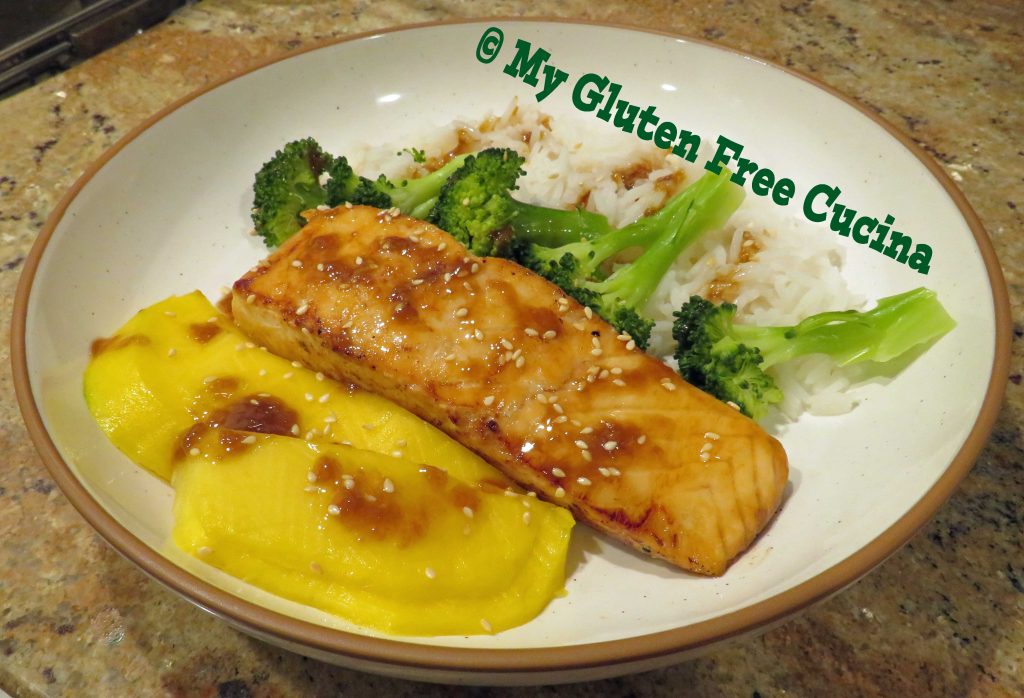

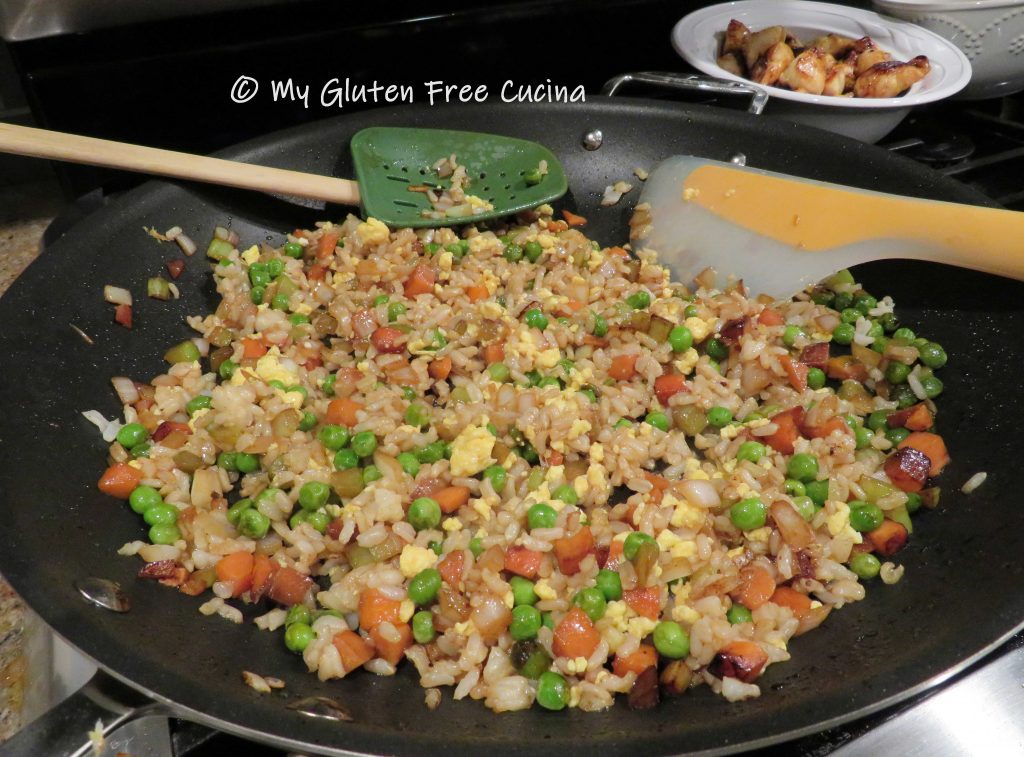
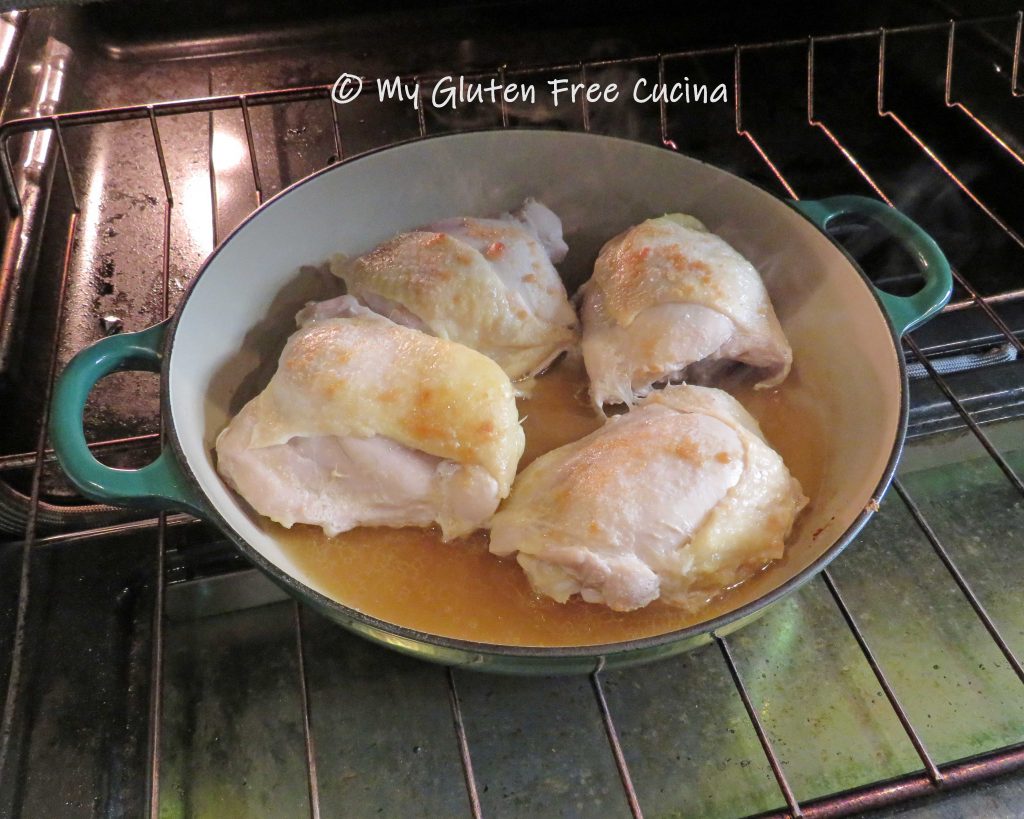
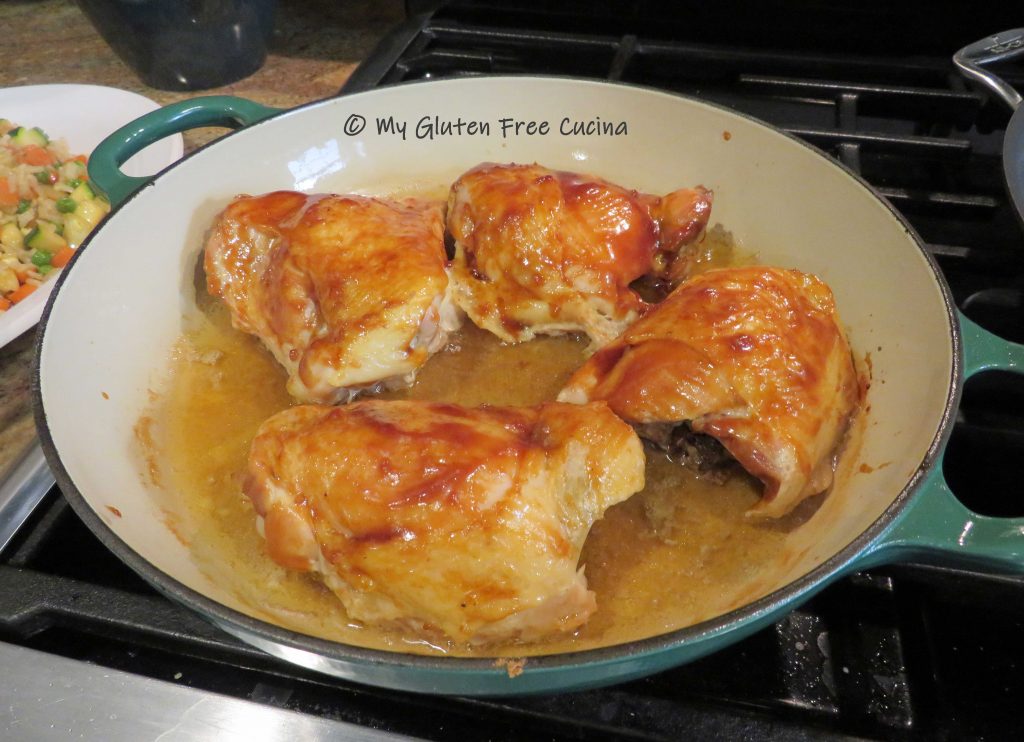 While the chicken was cooking, I made my fried rice.
While the chicken was cooking, I made my fried rice. 